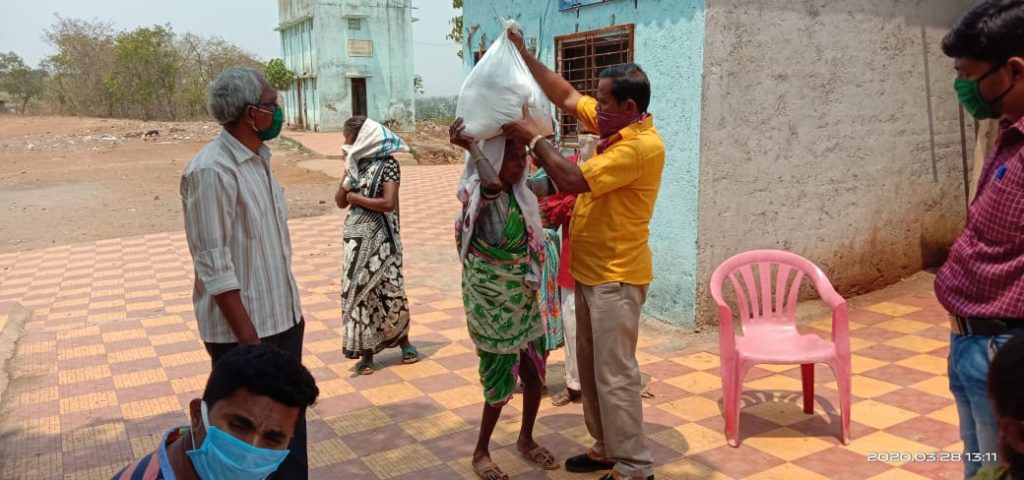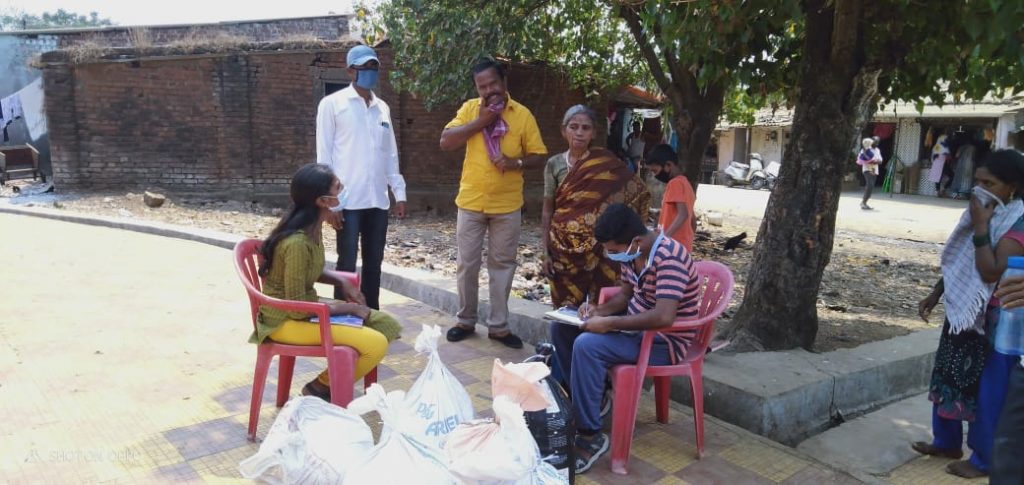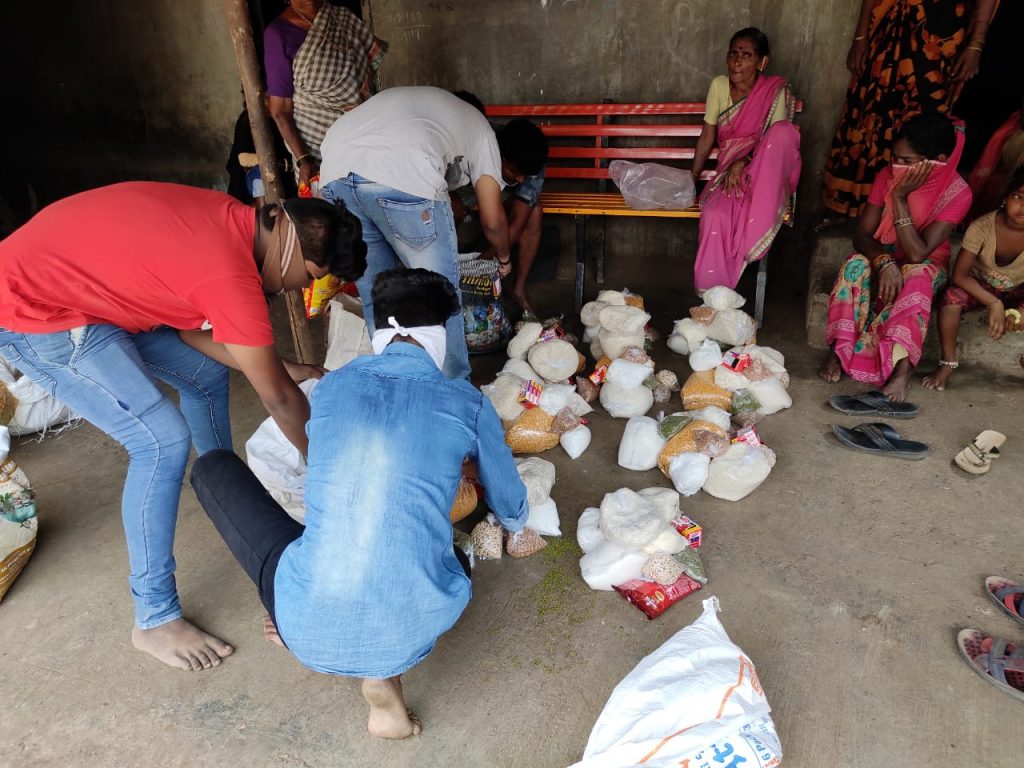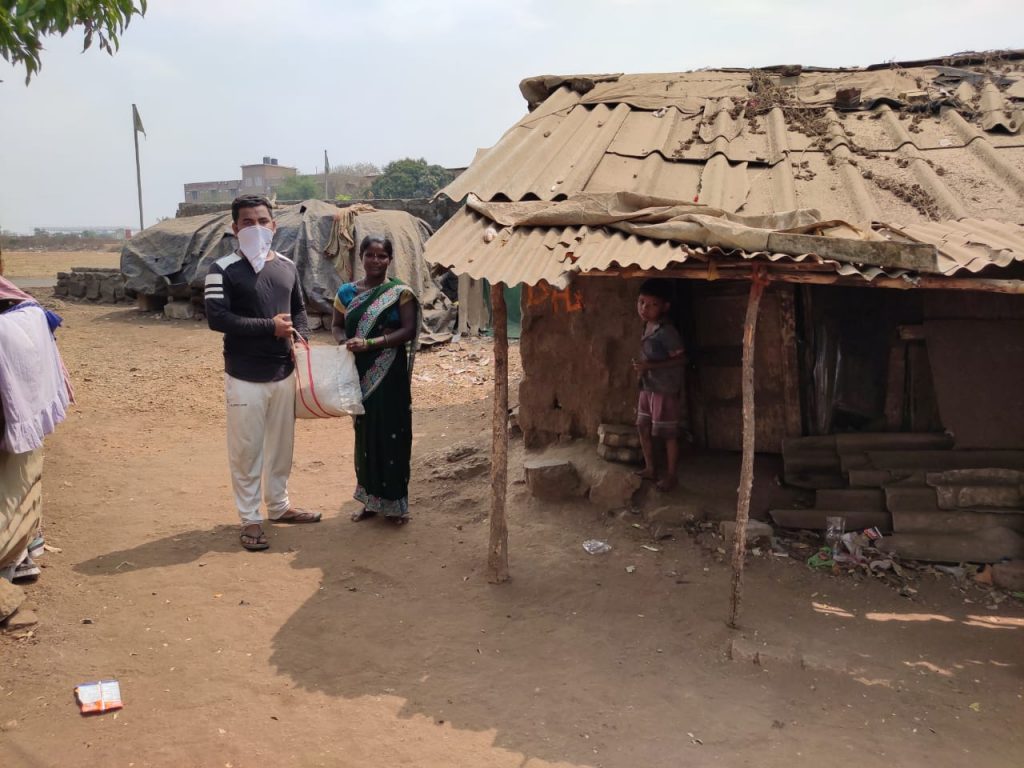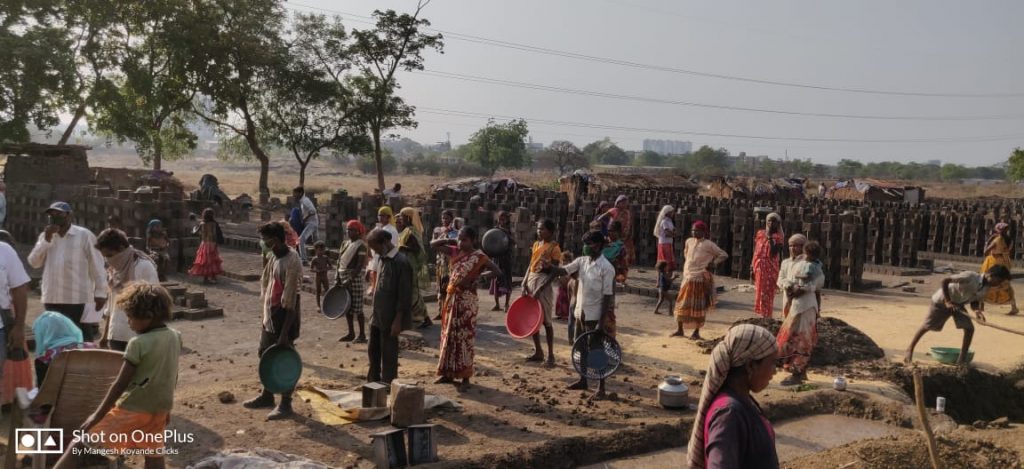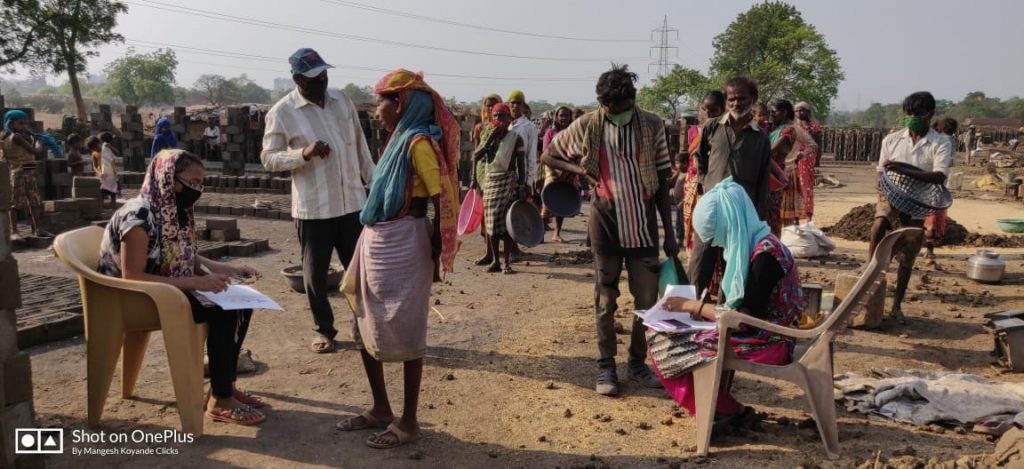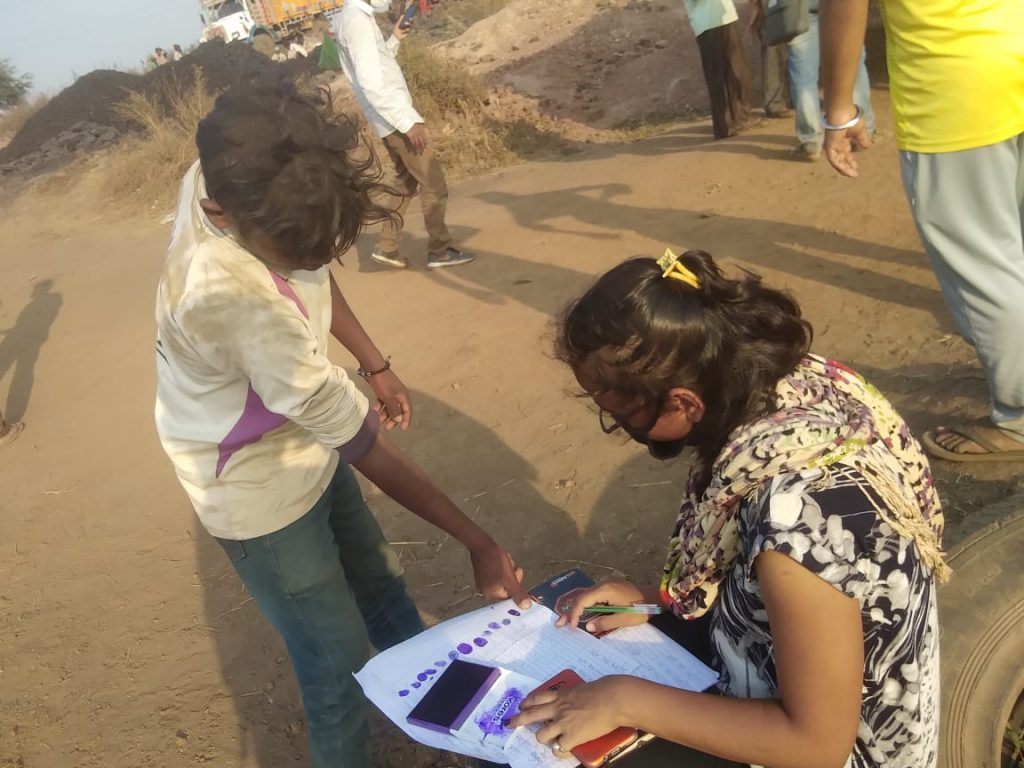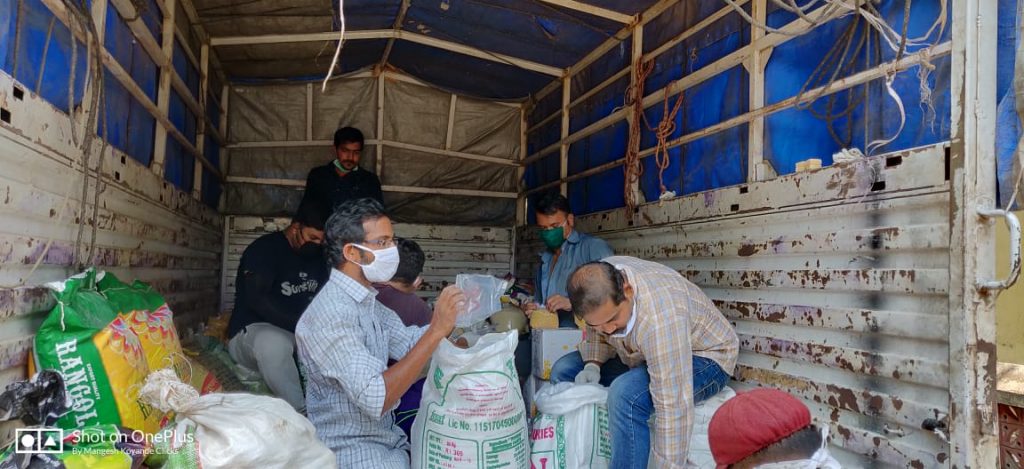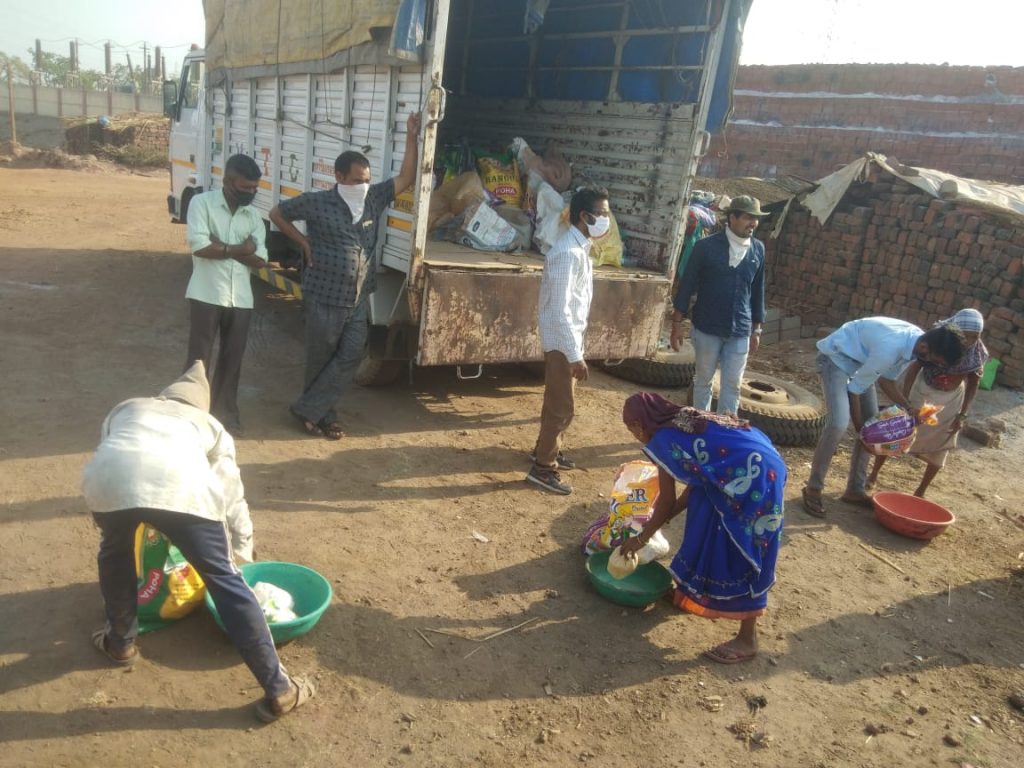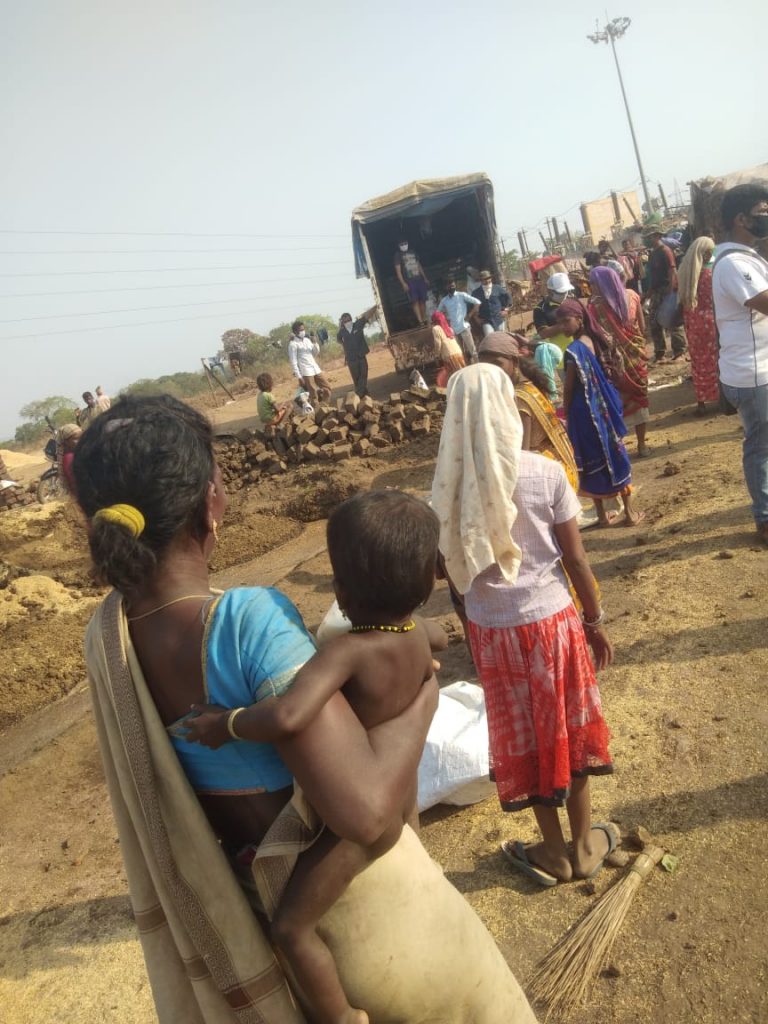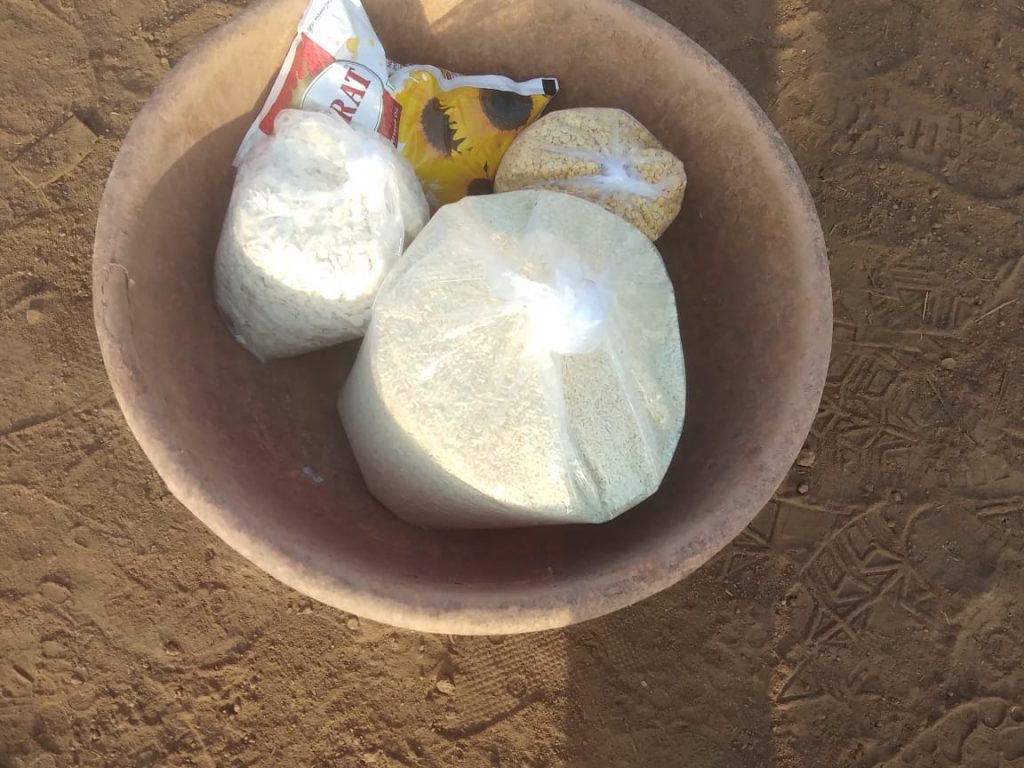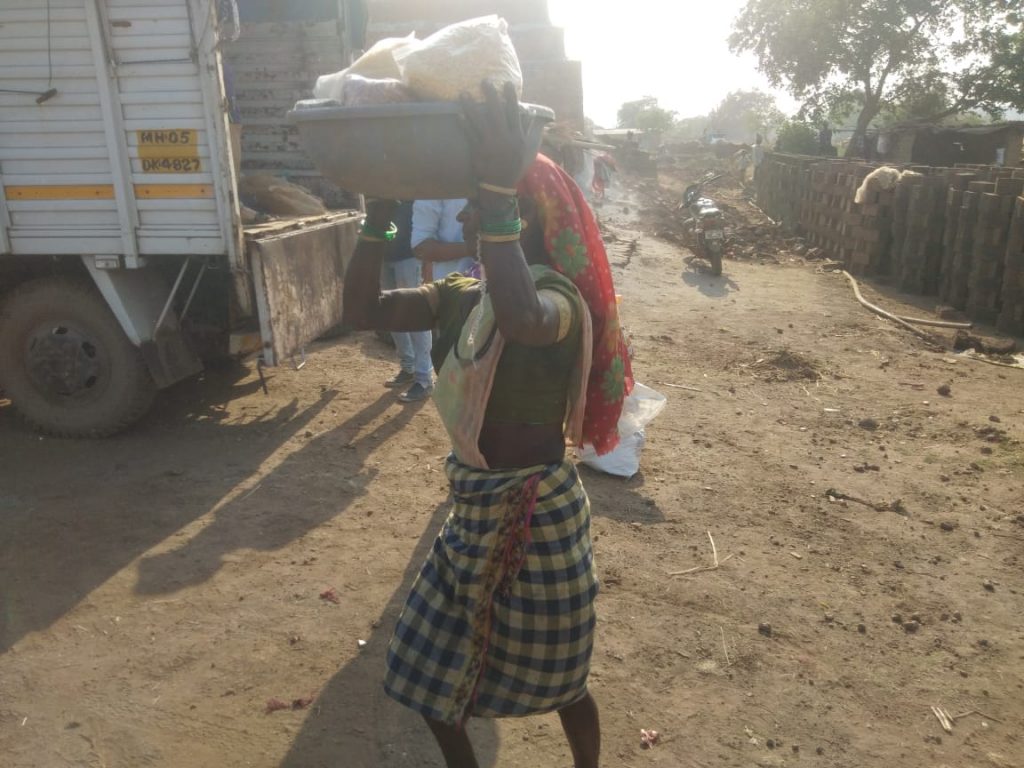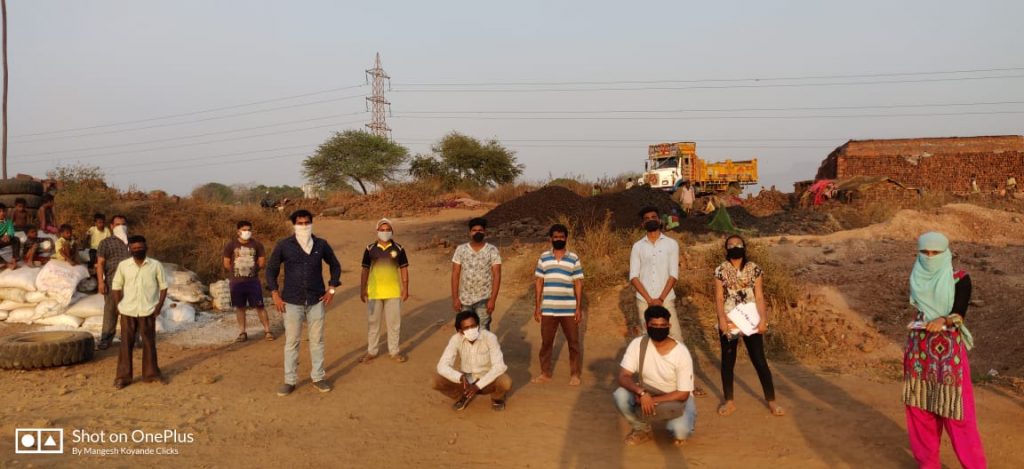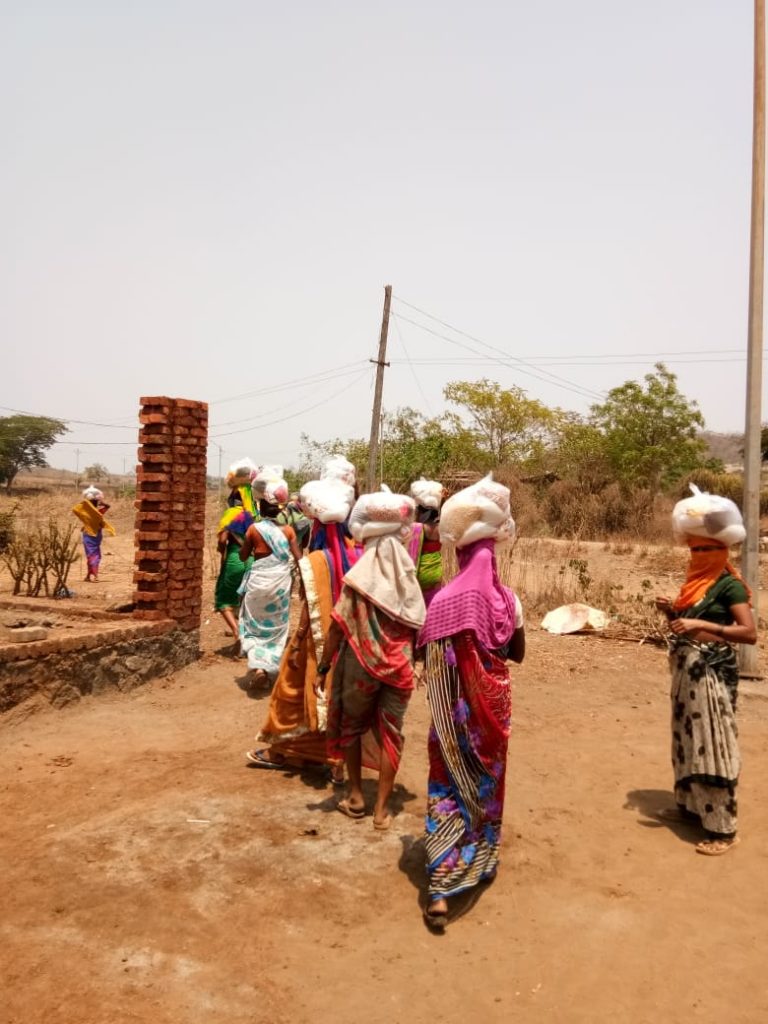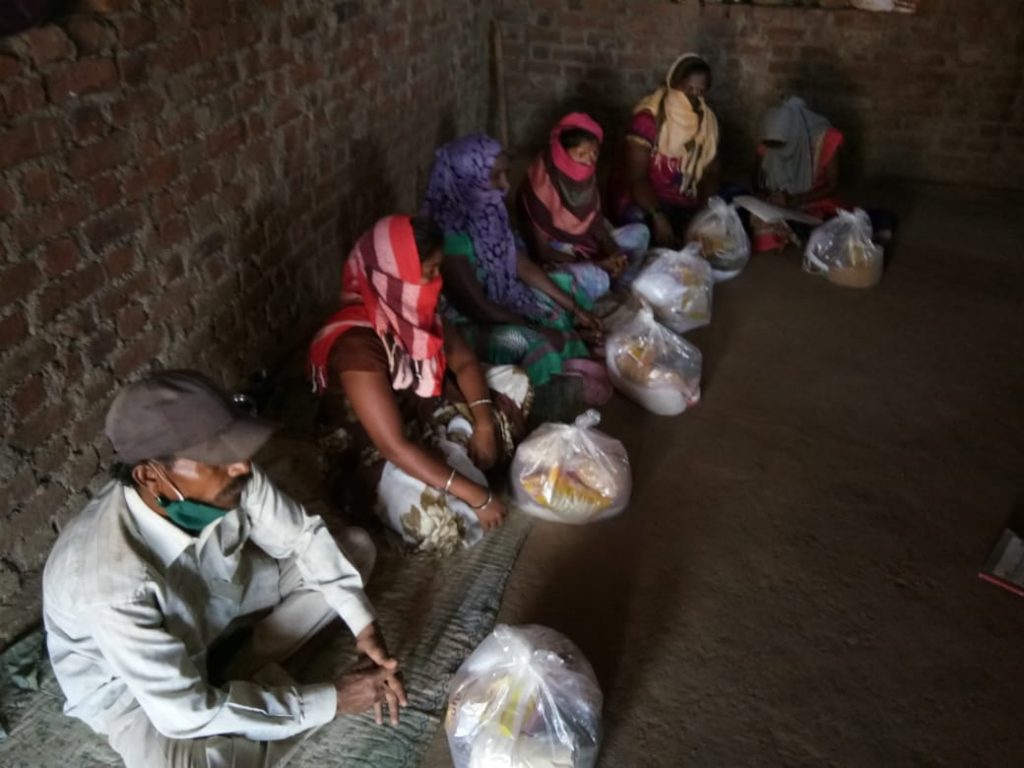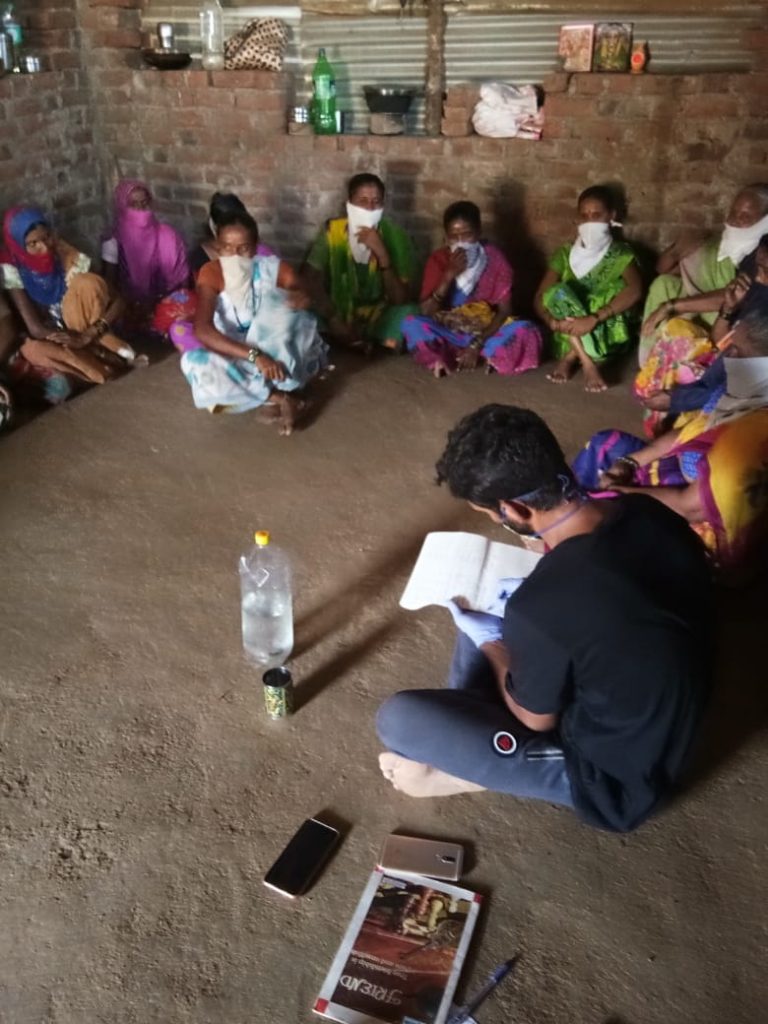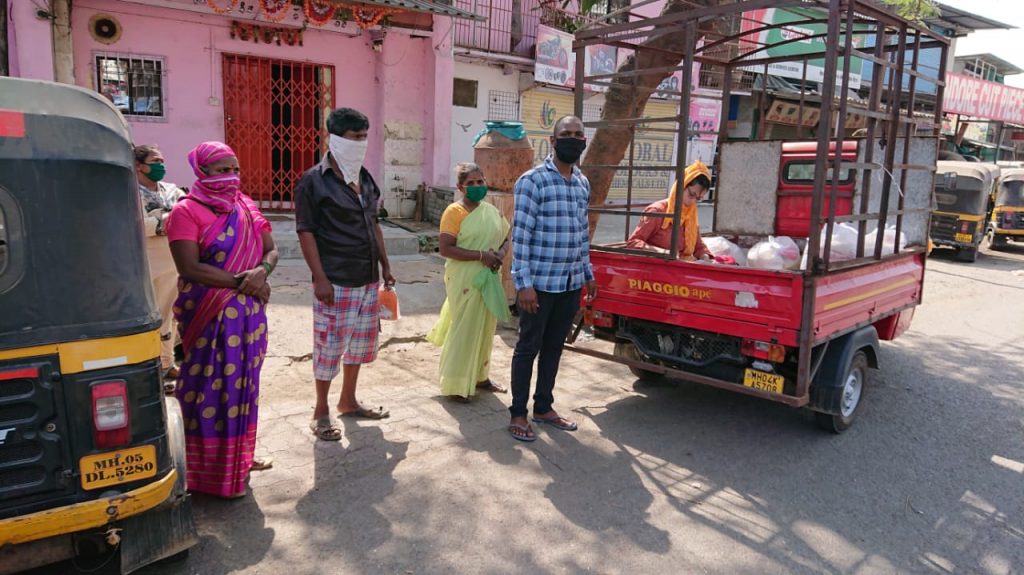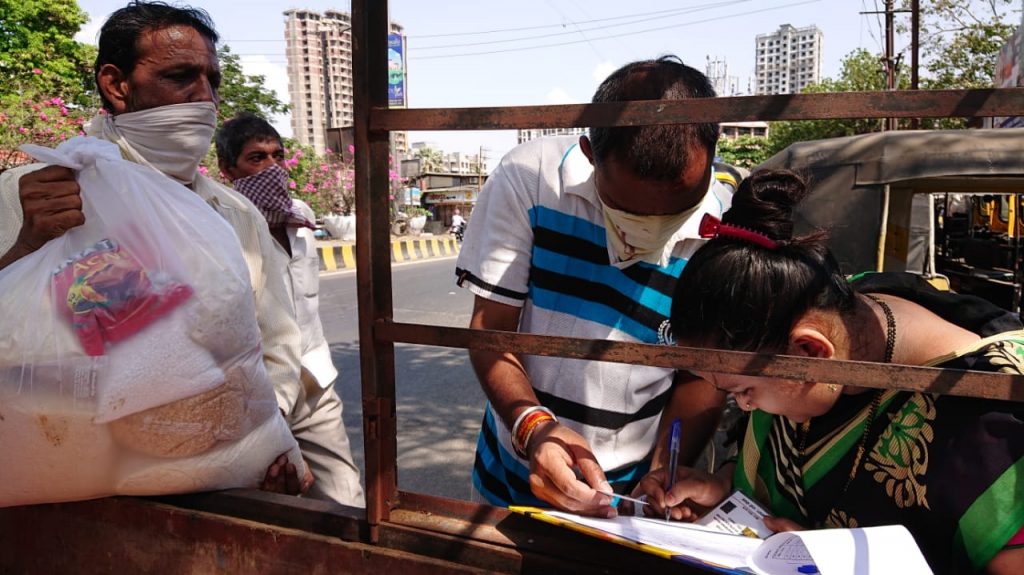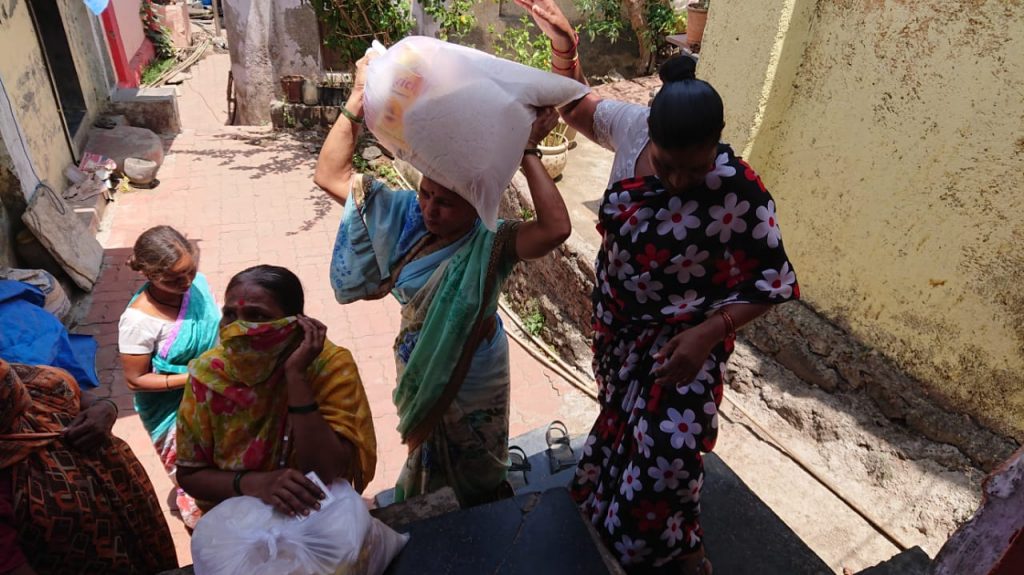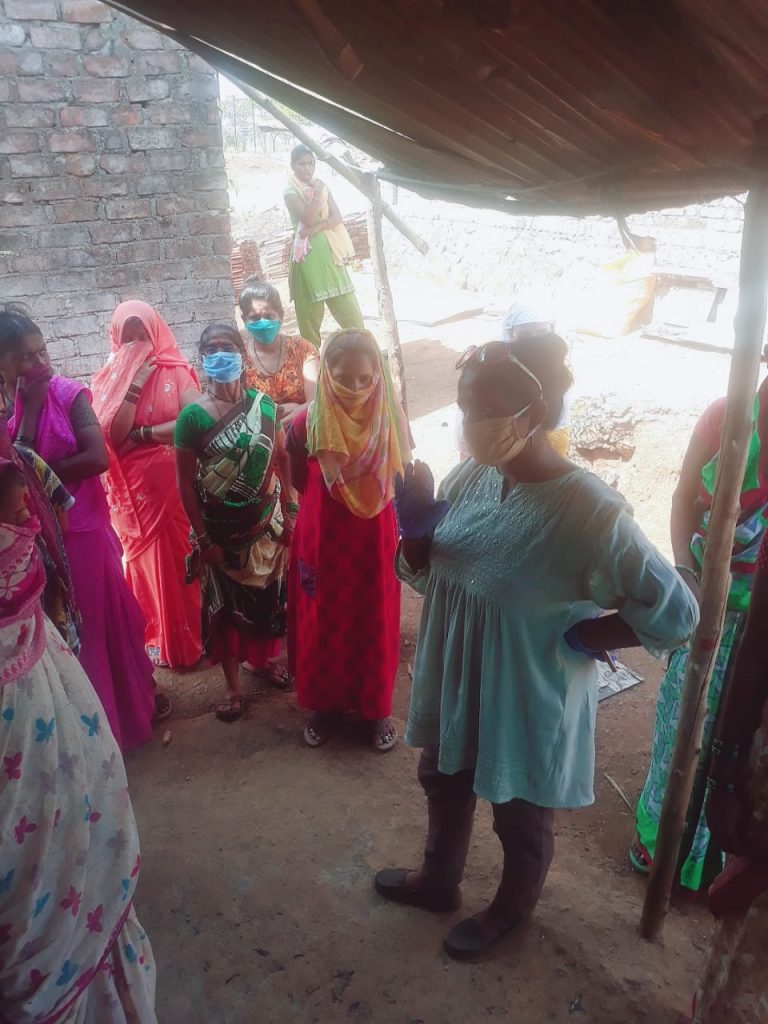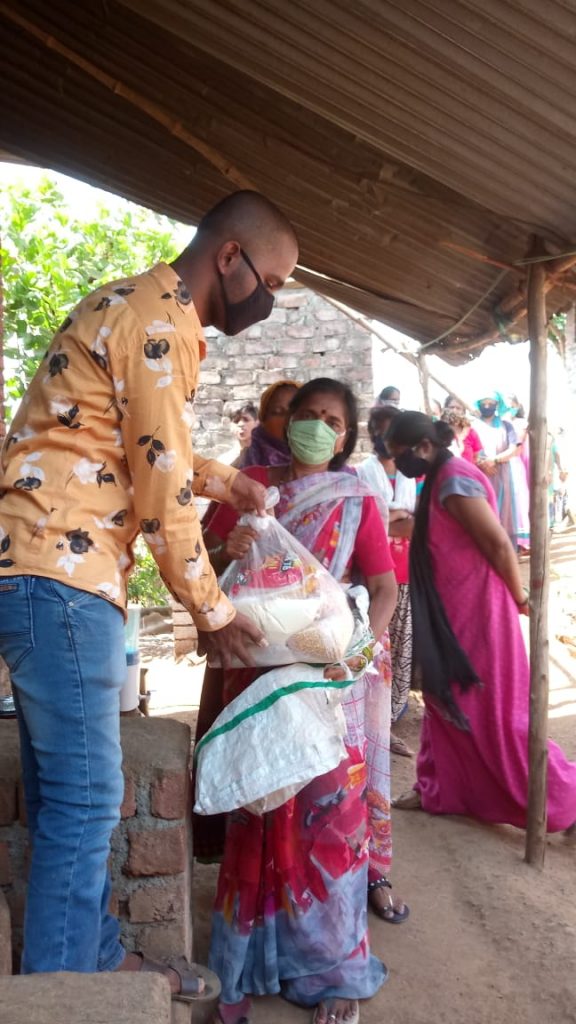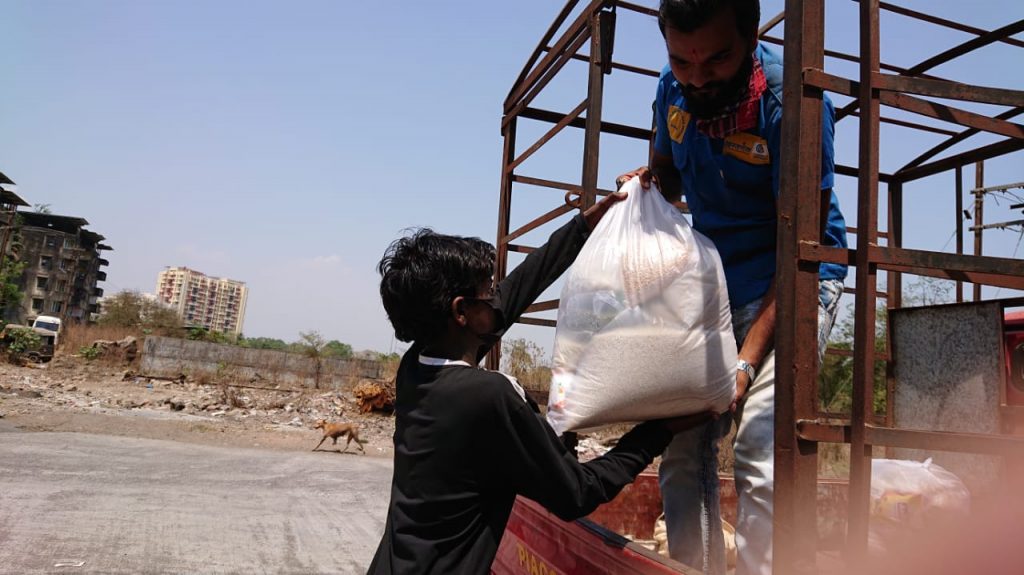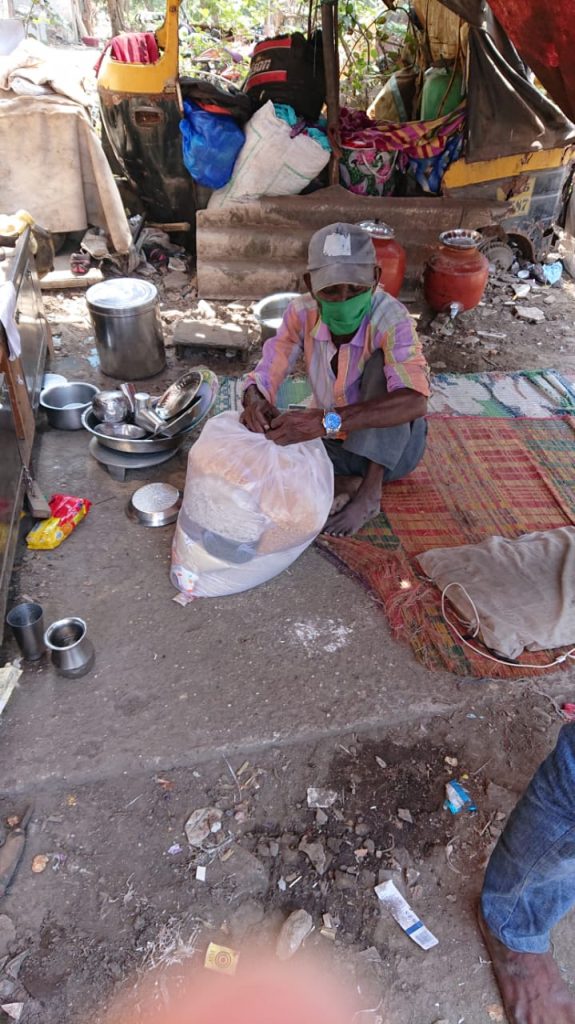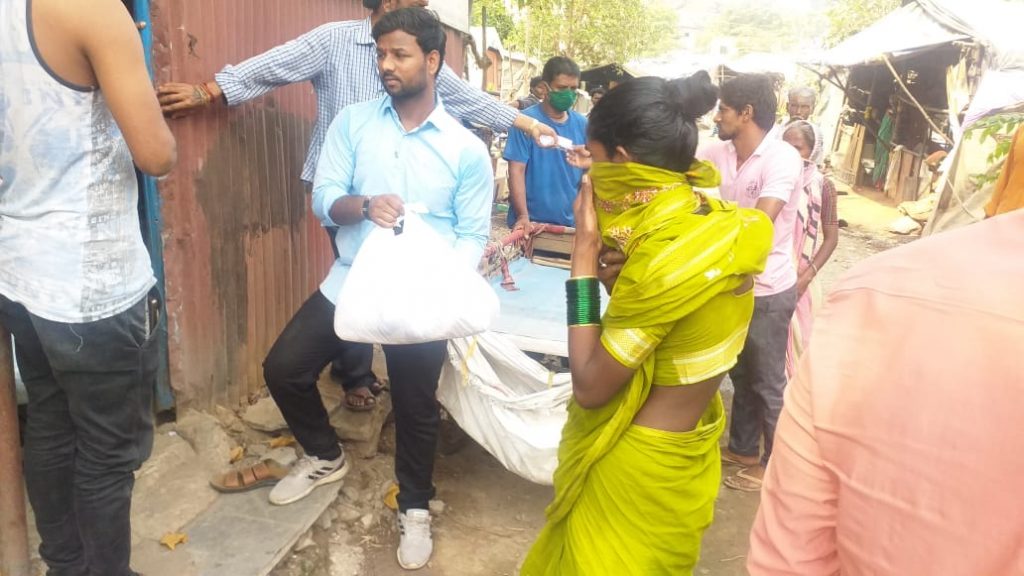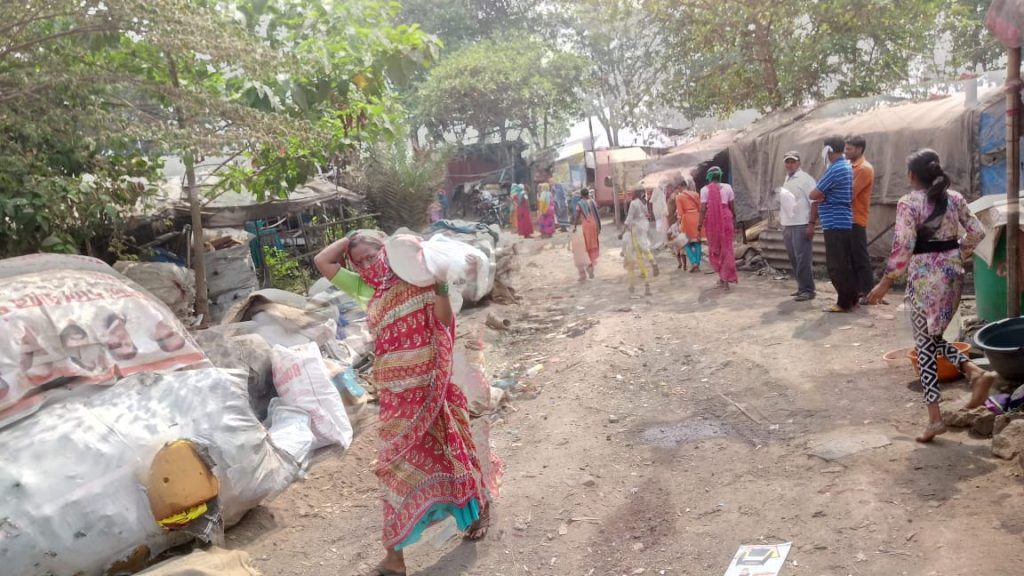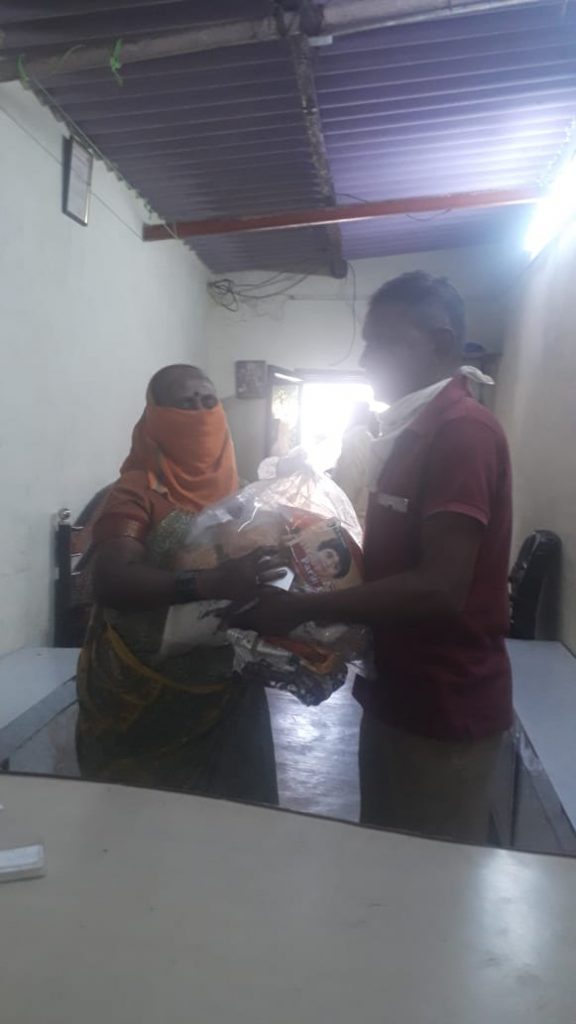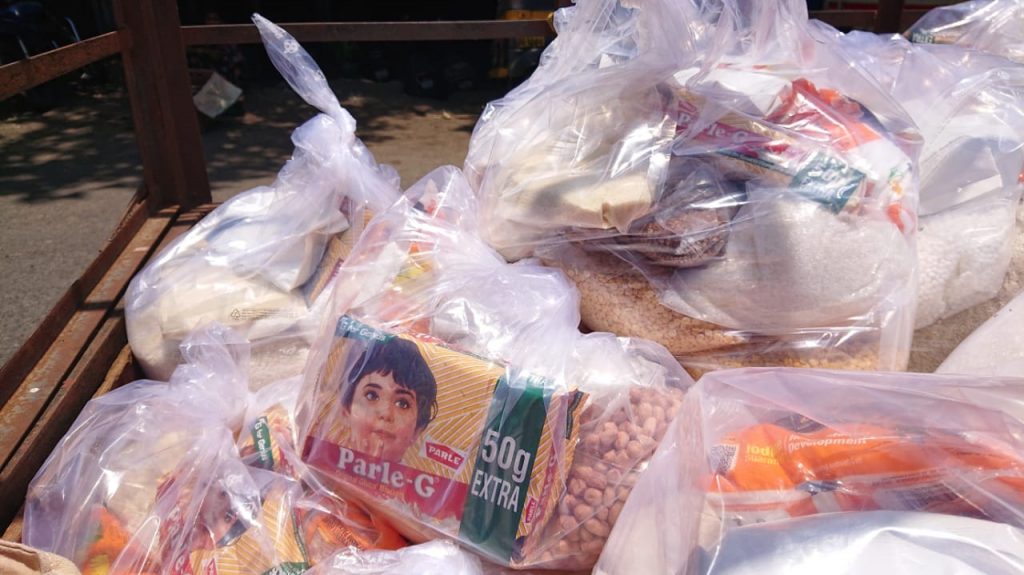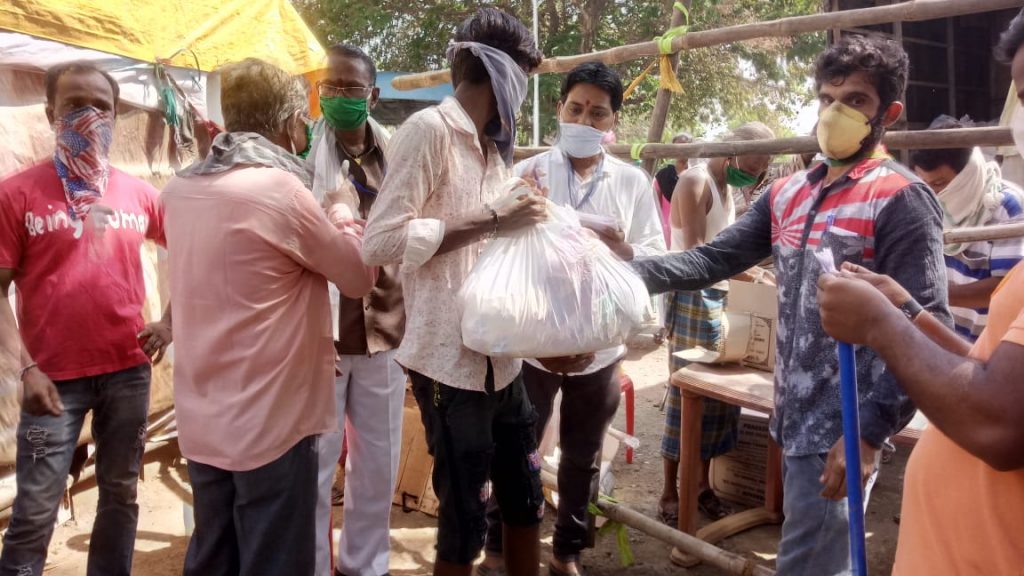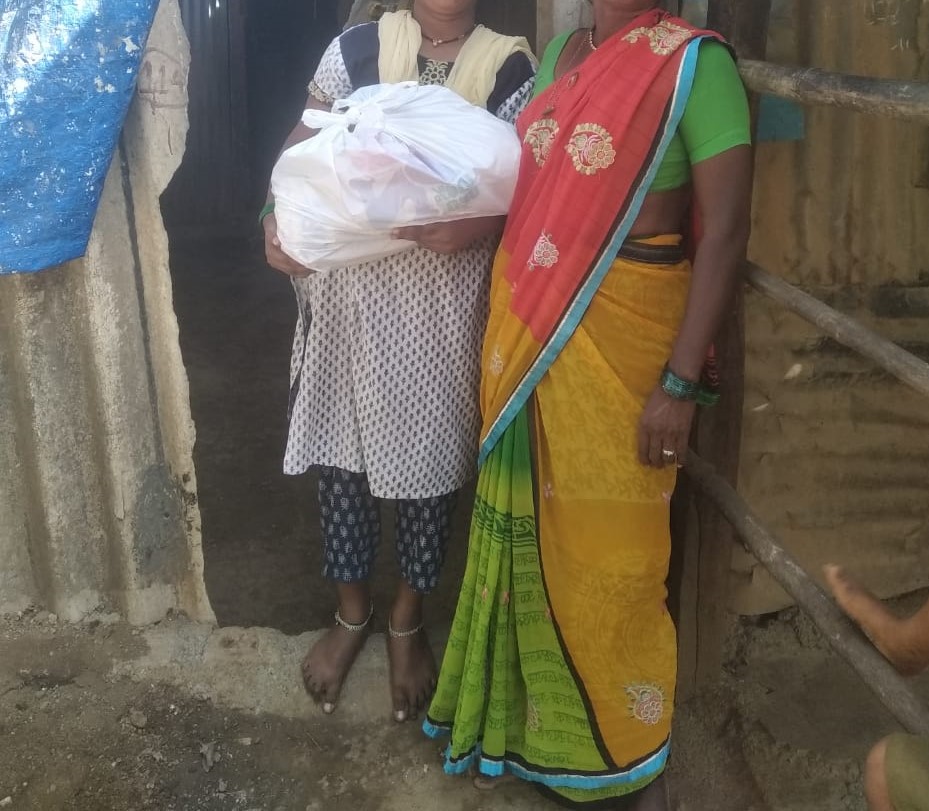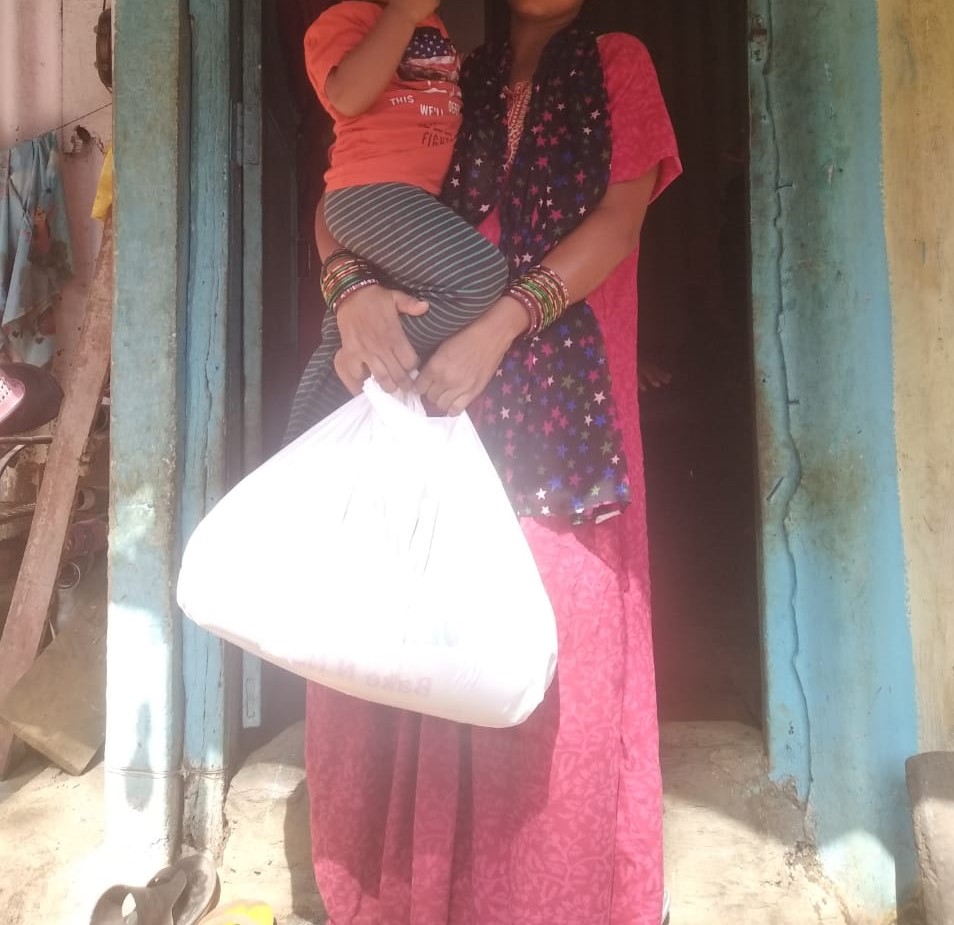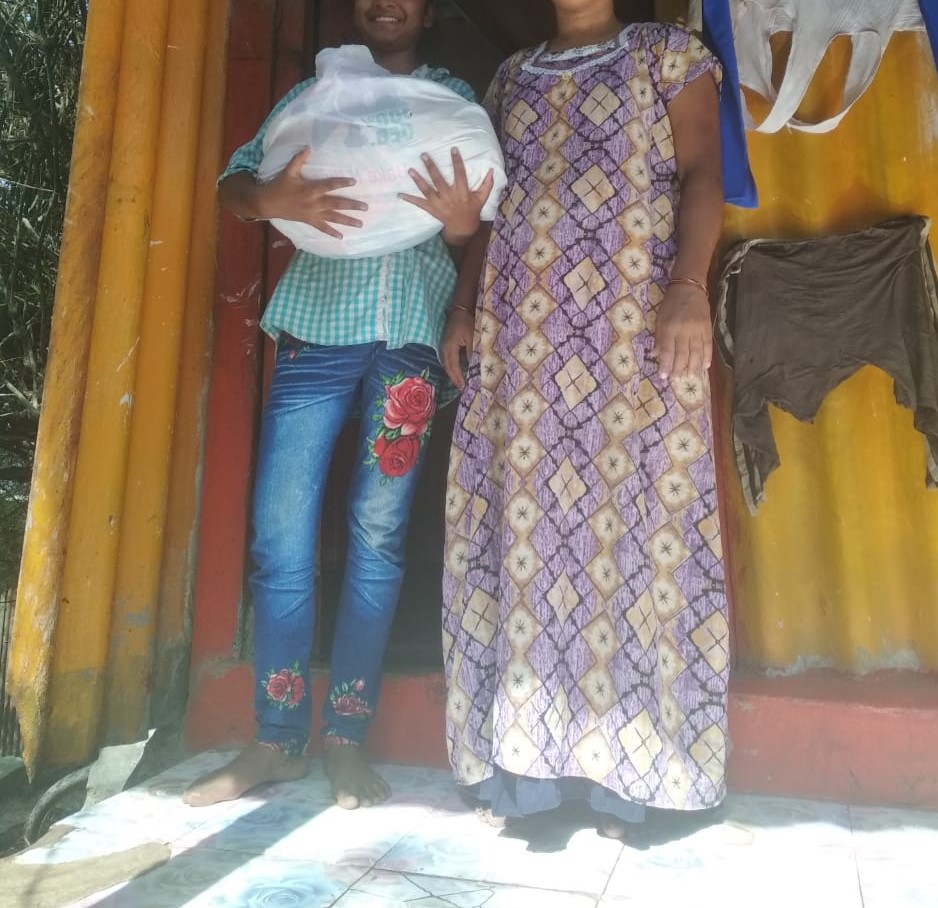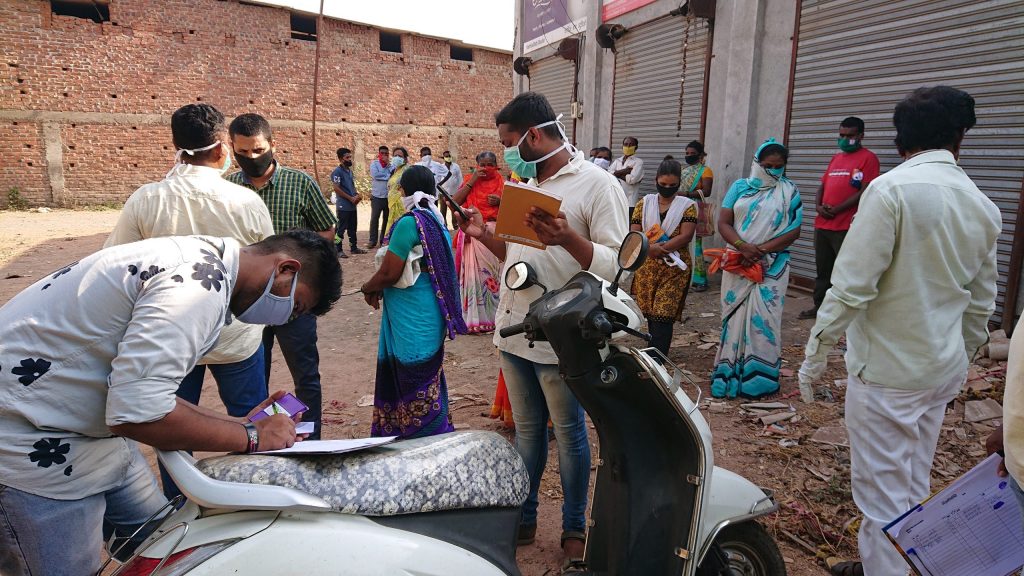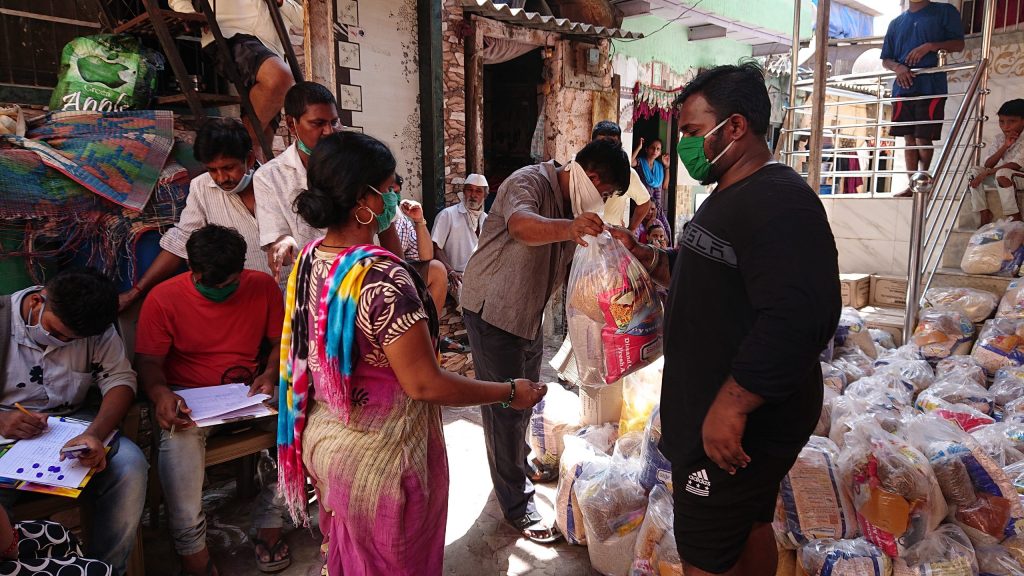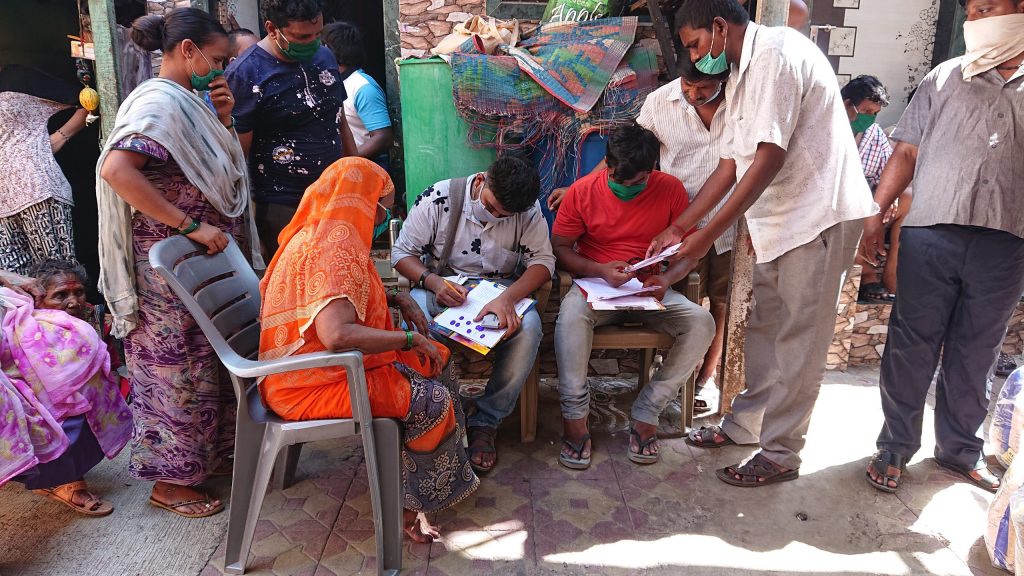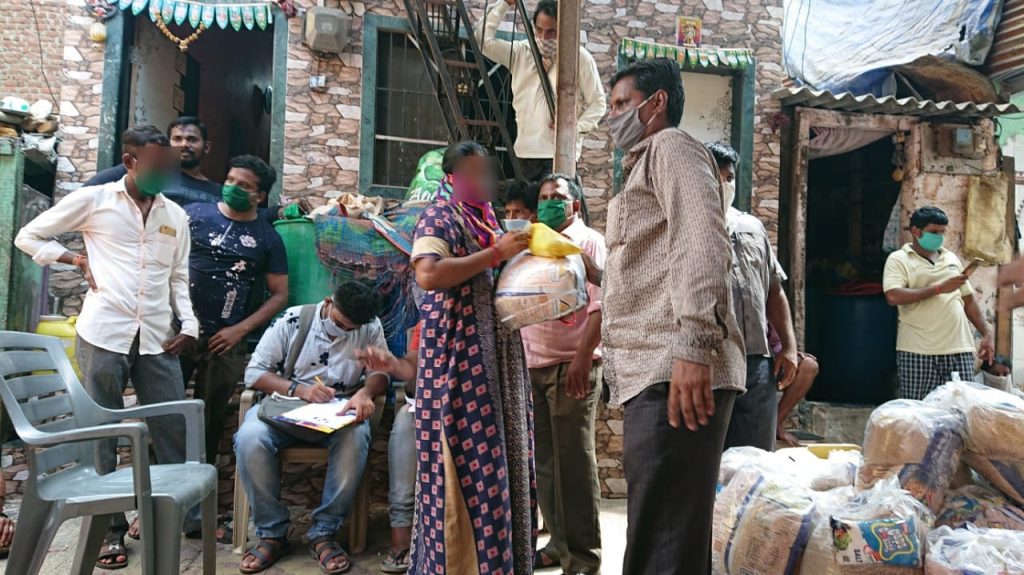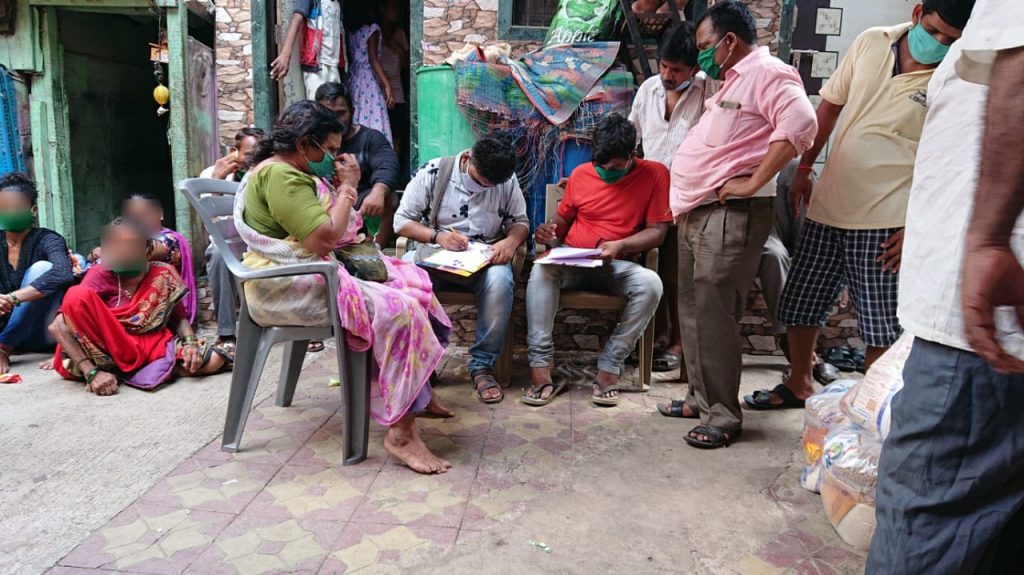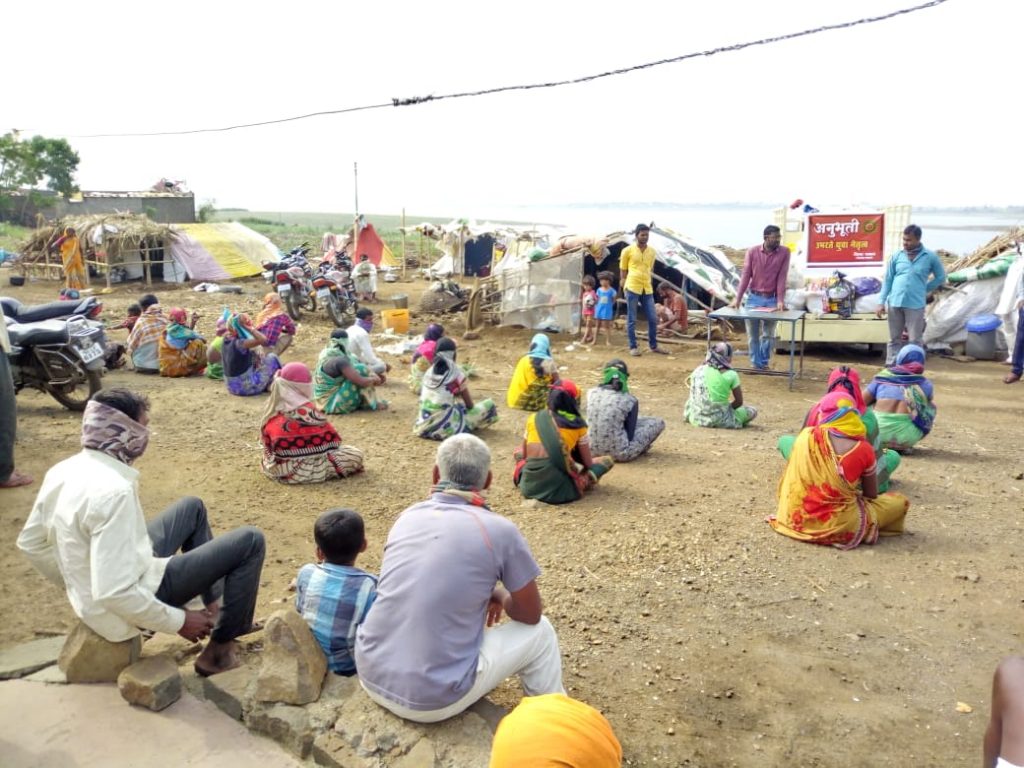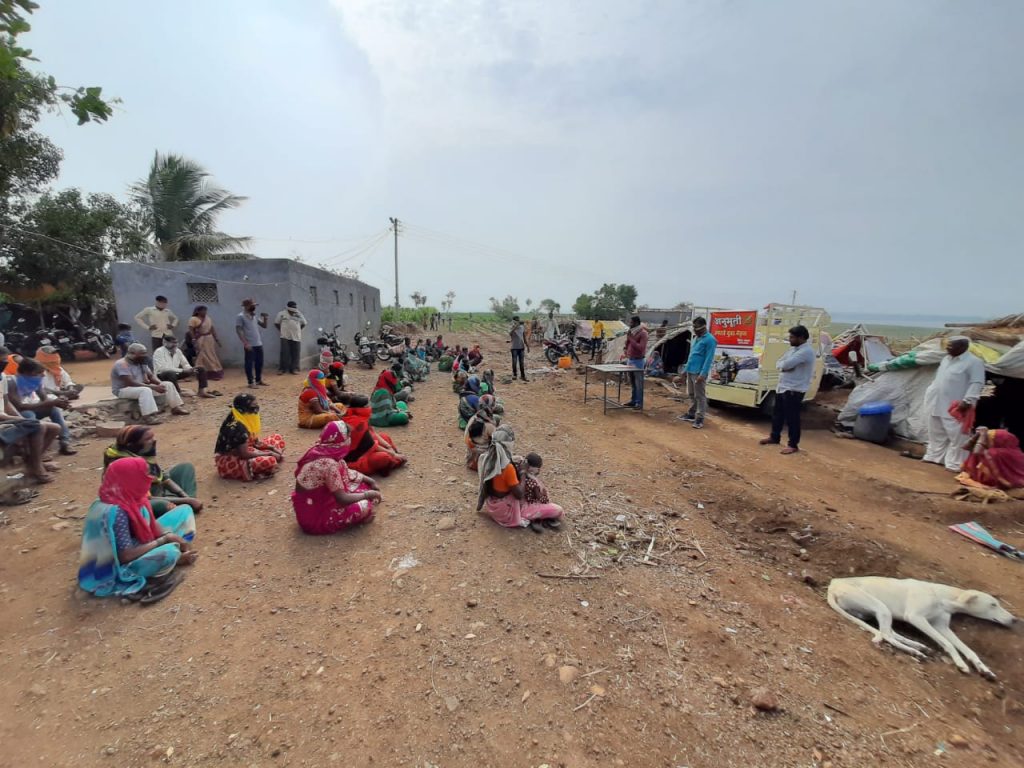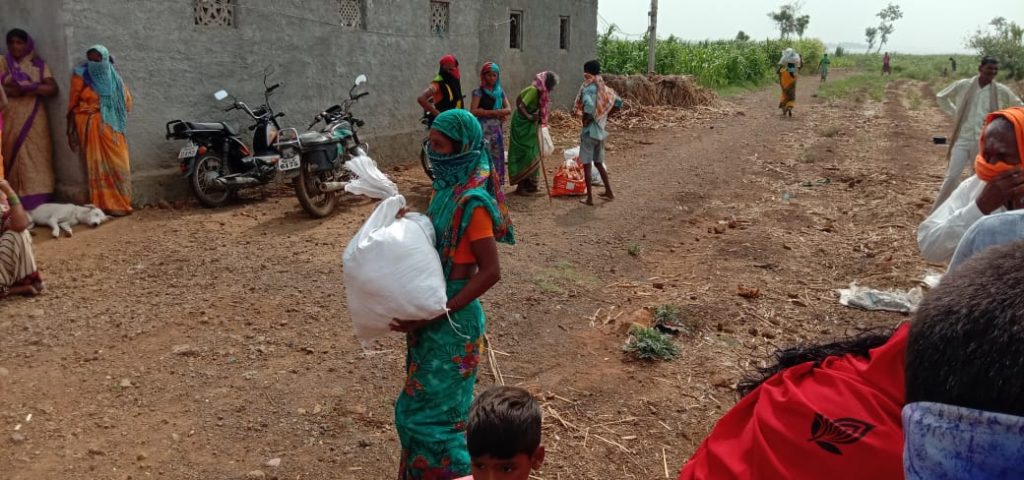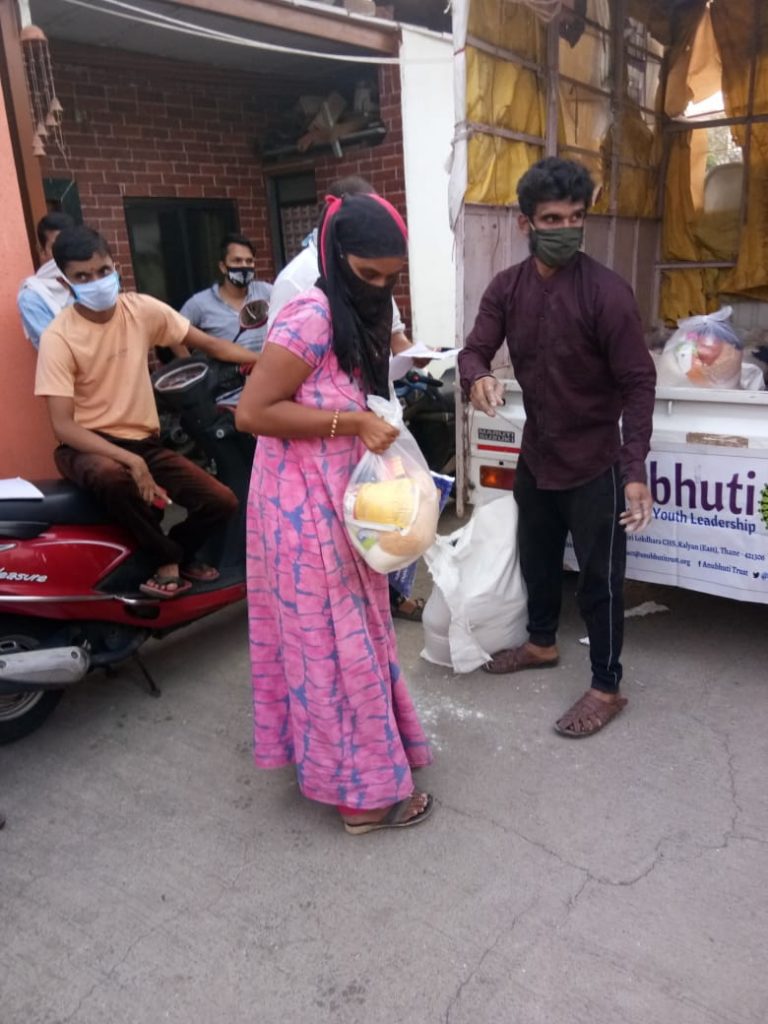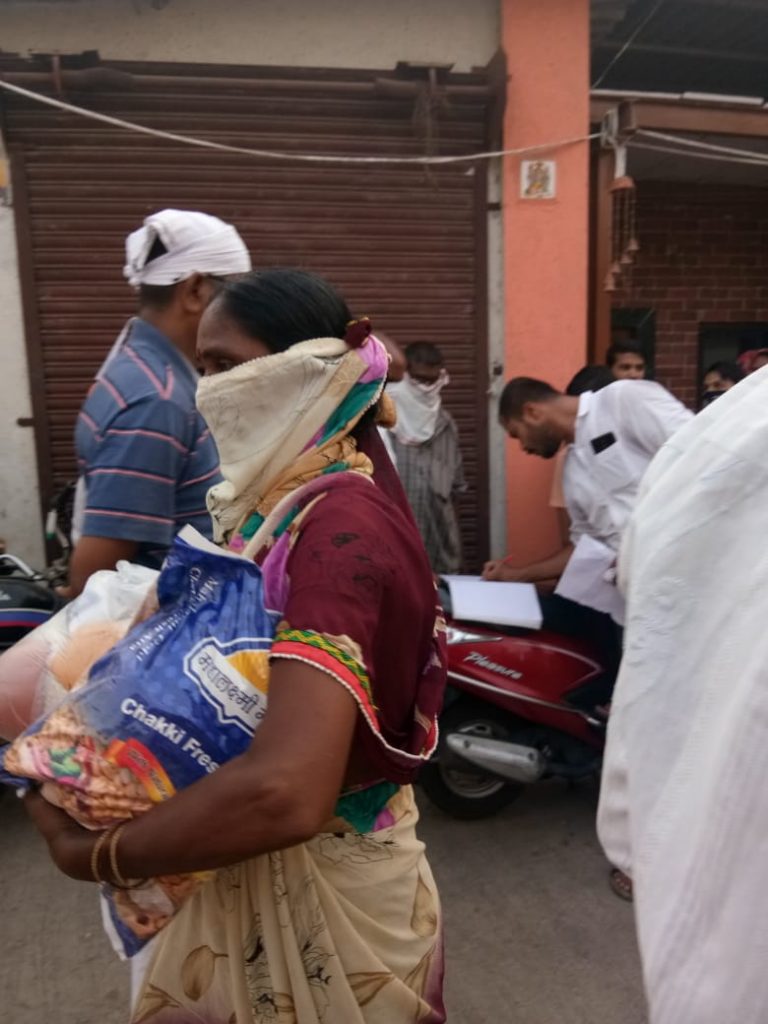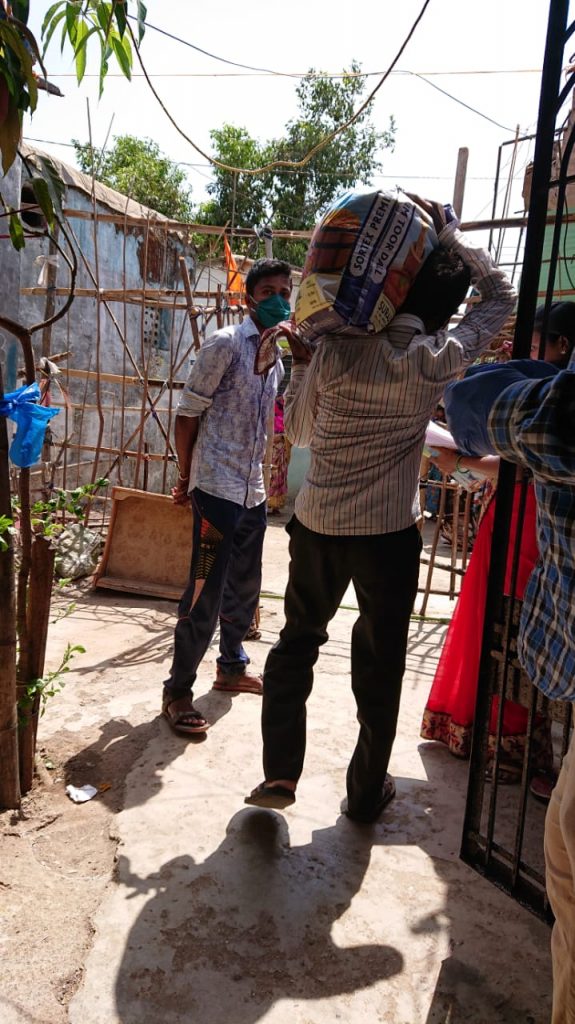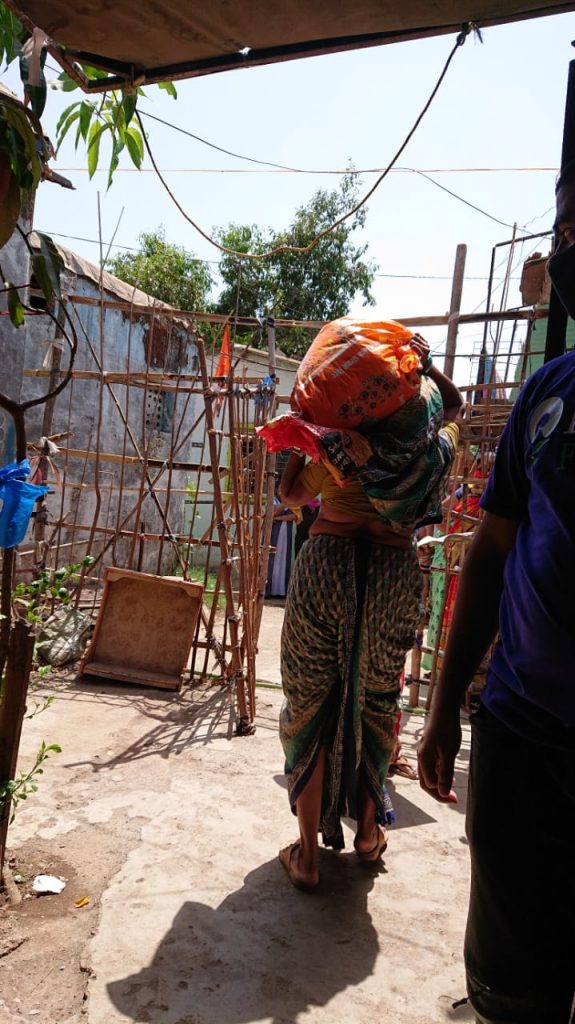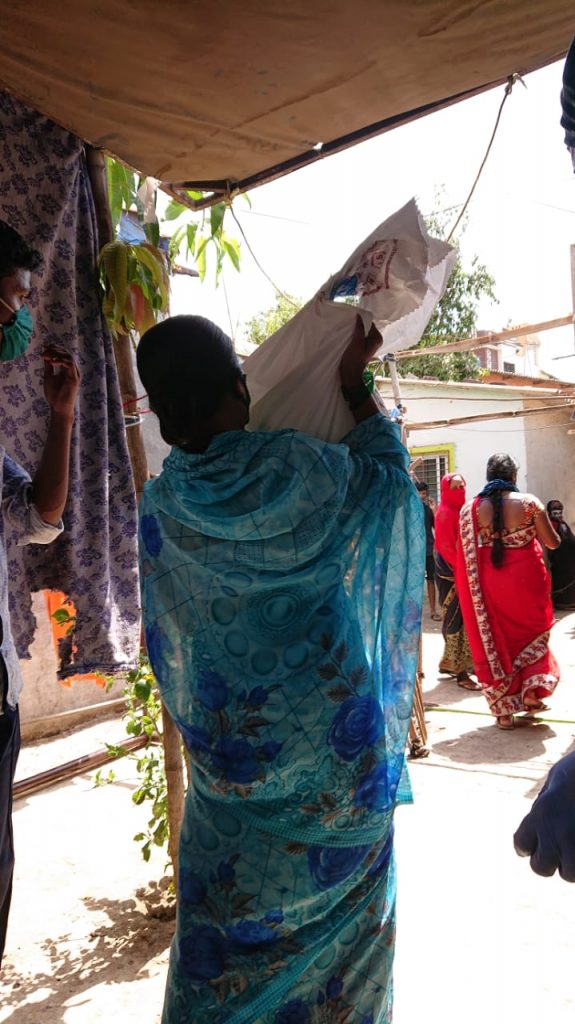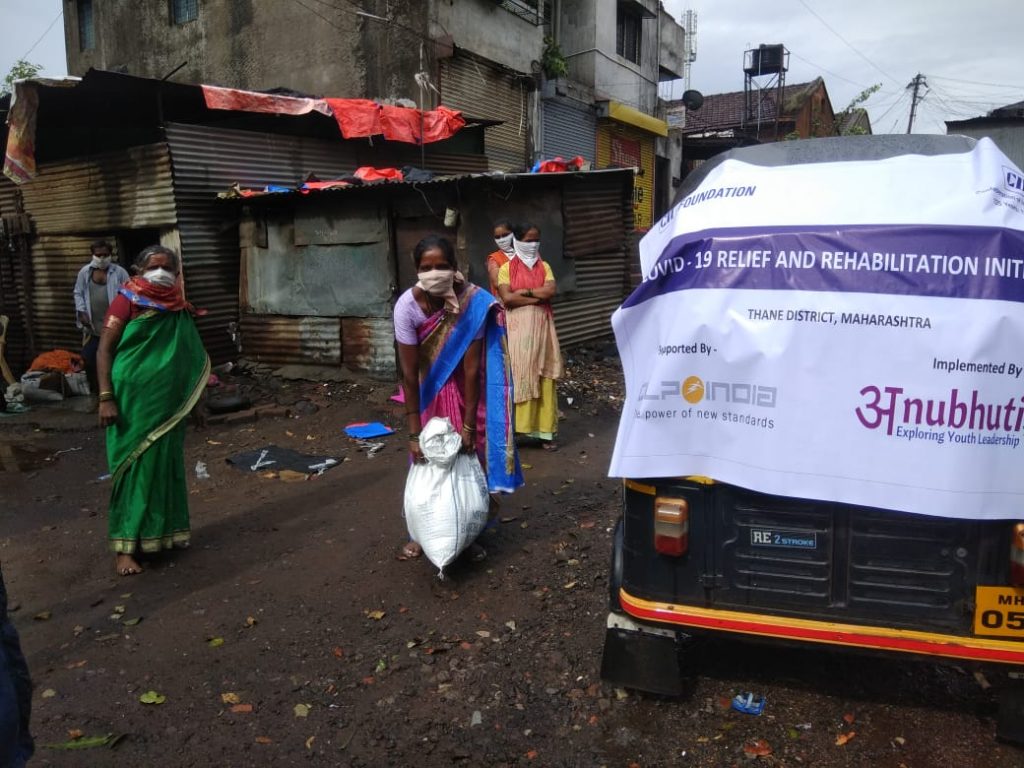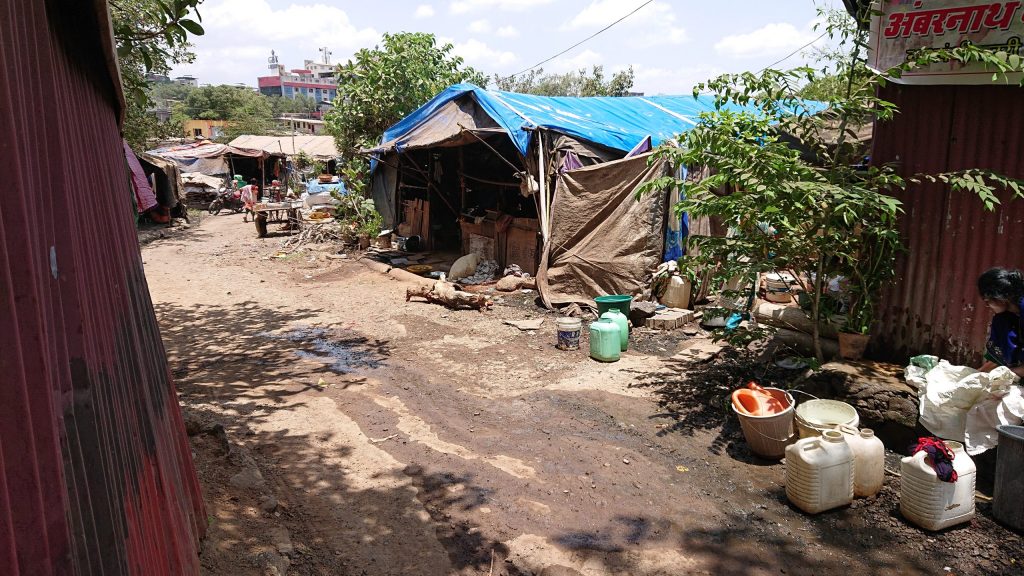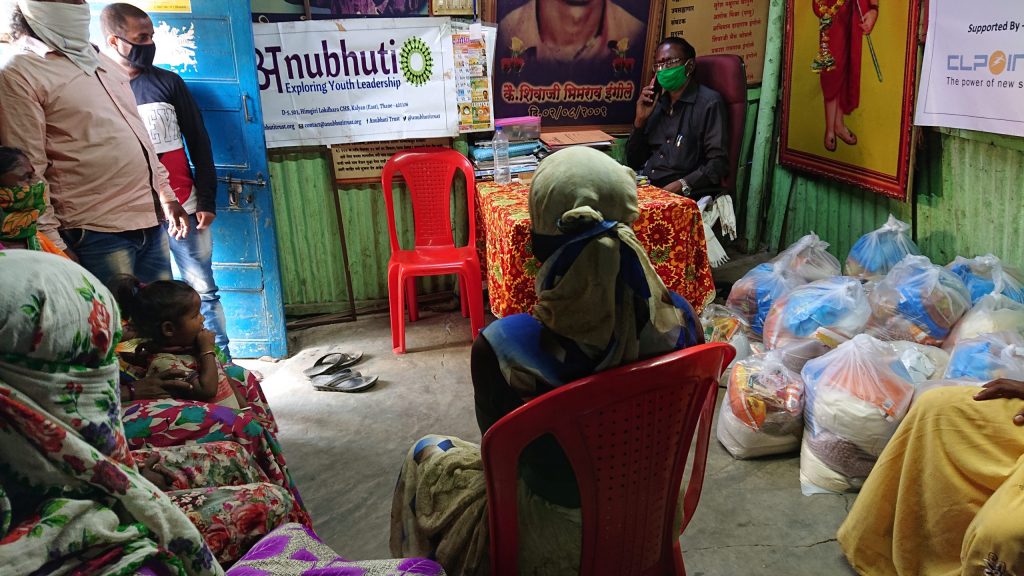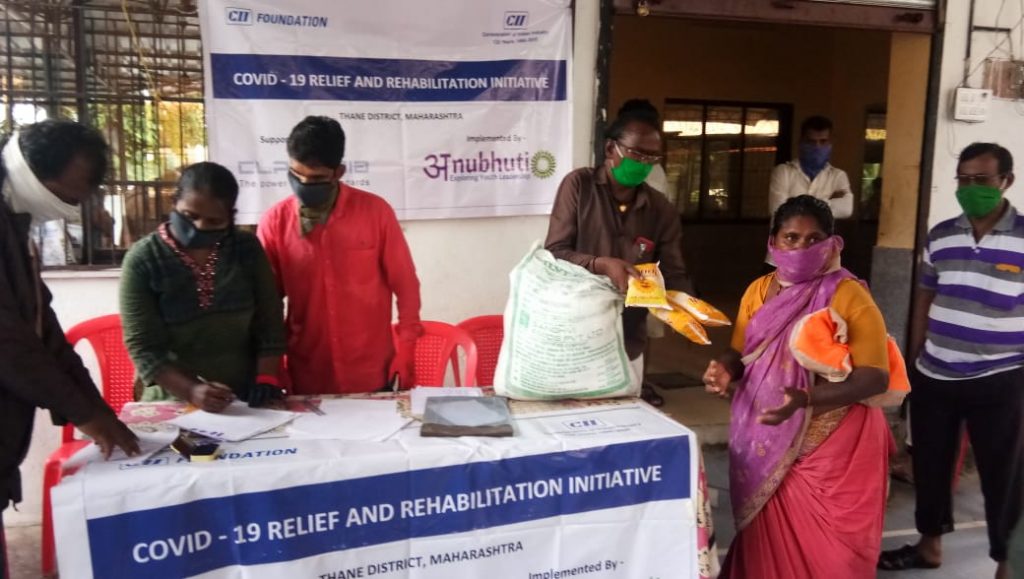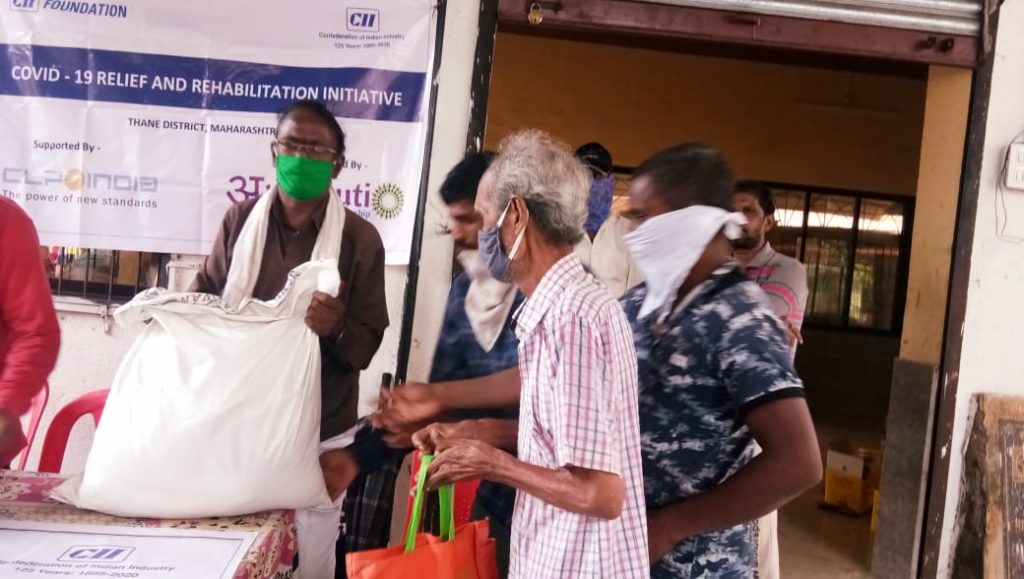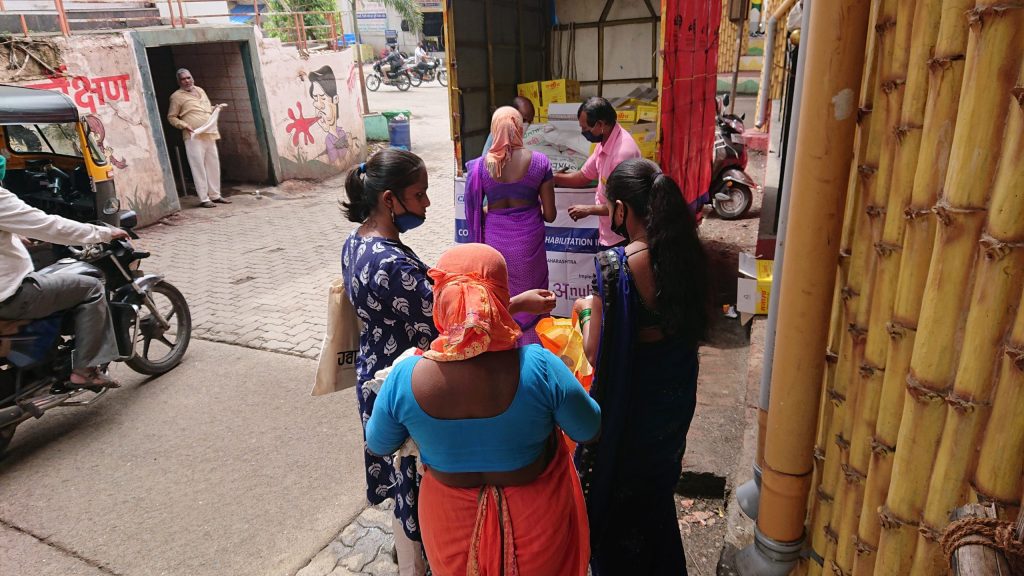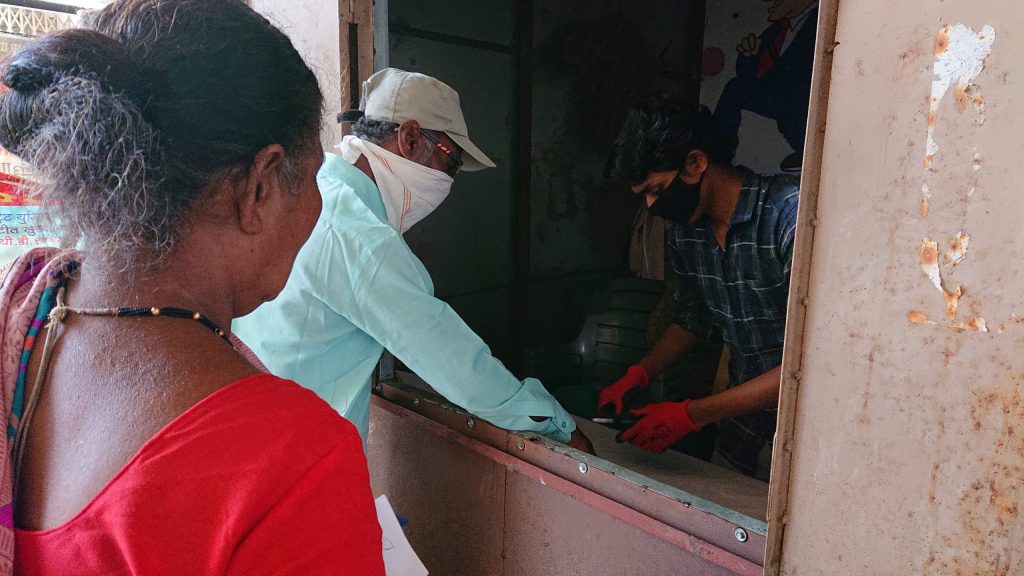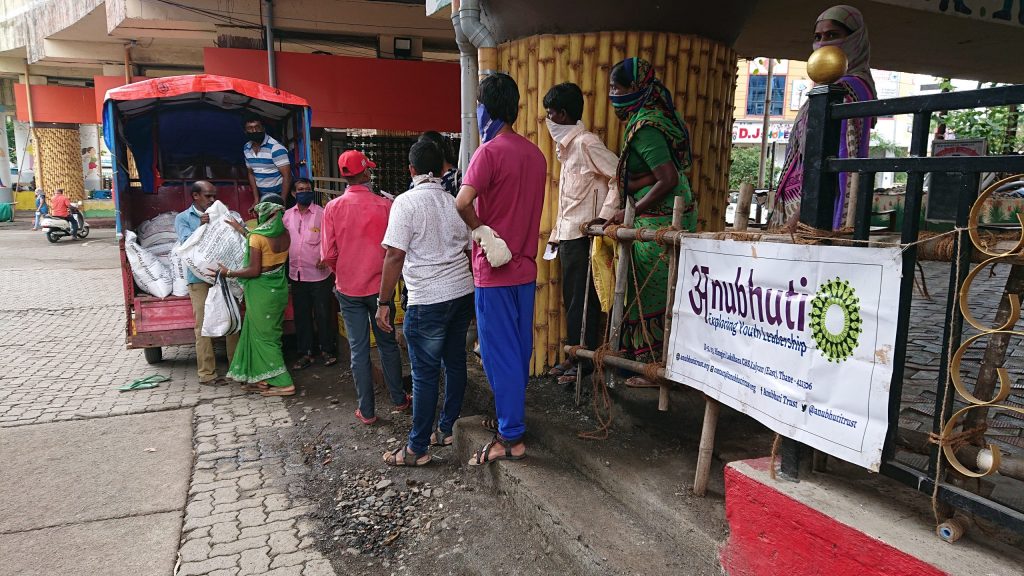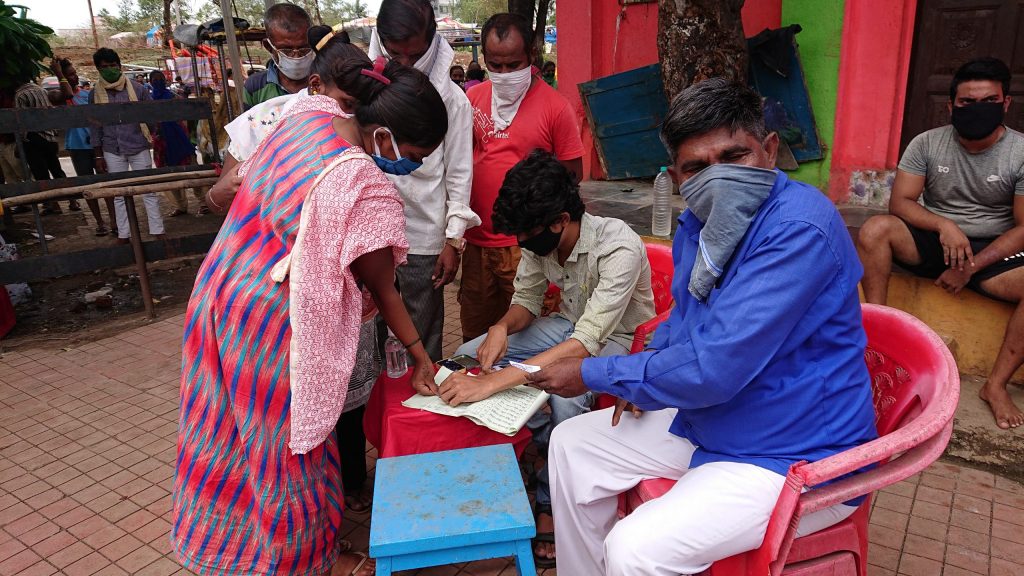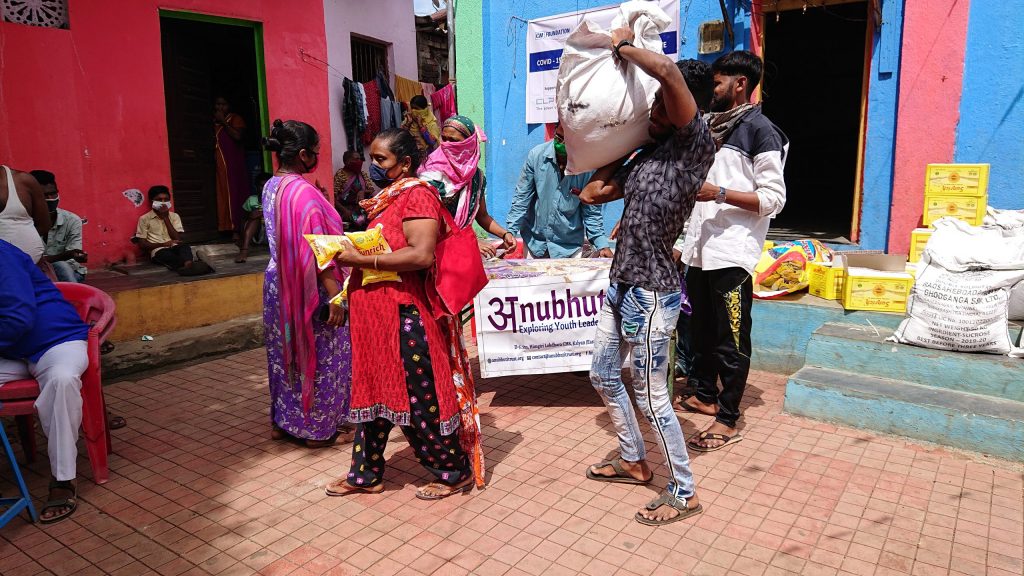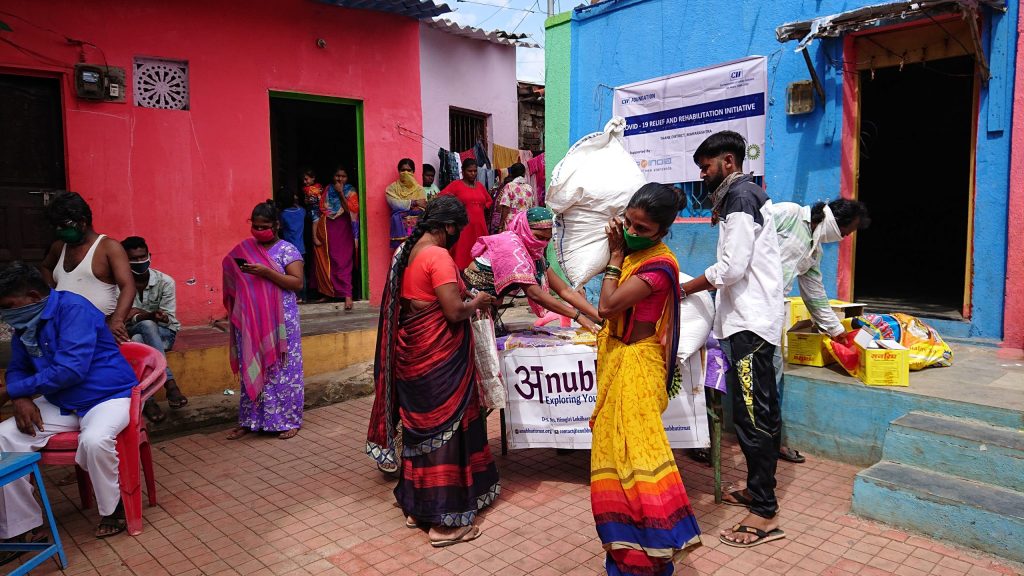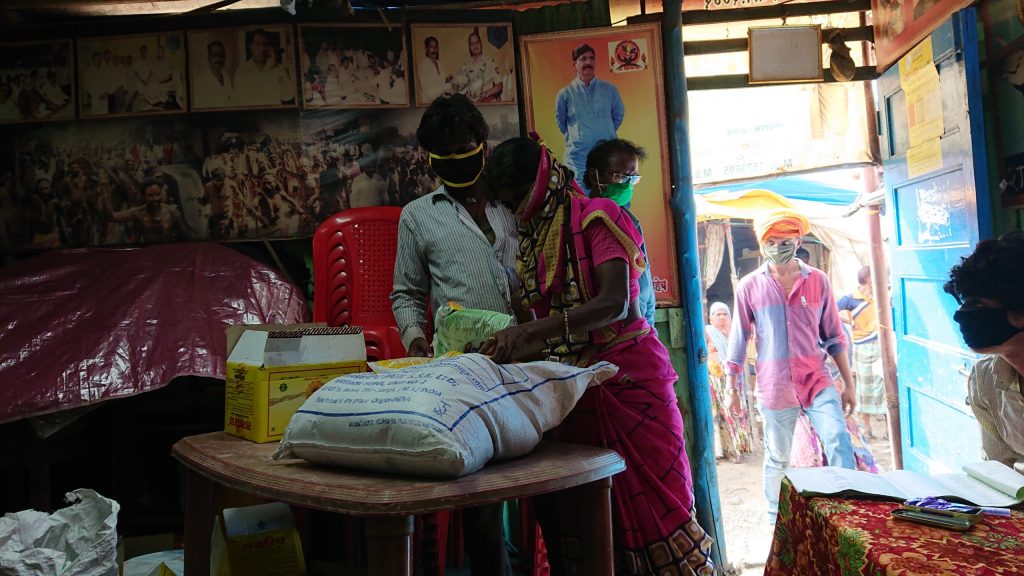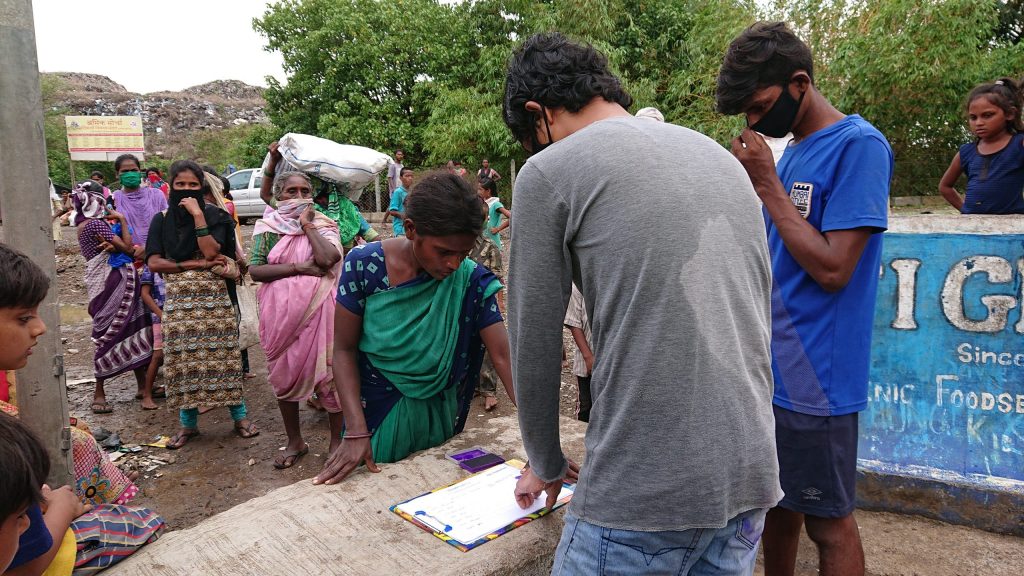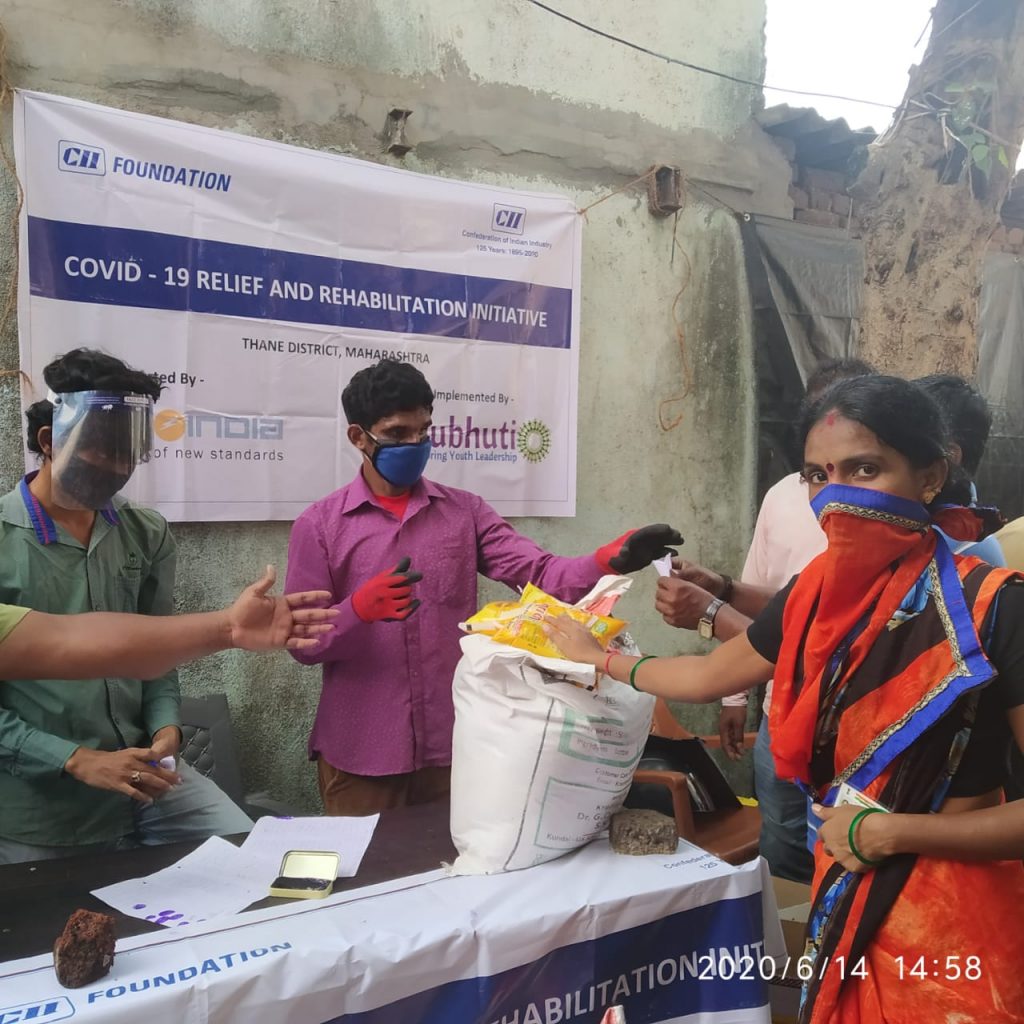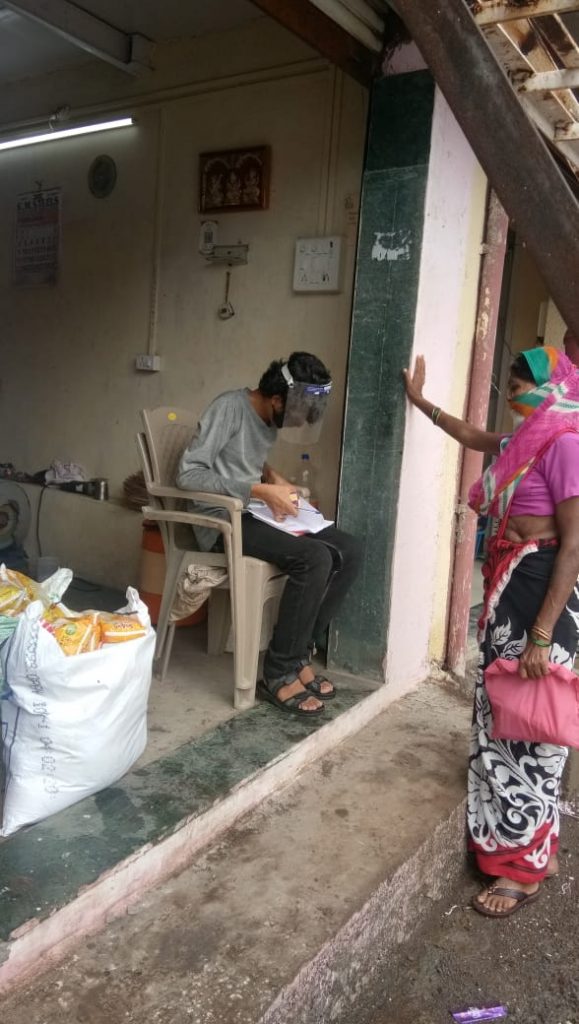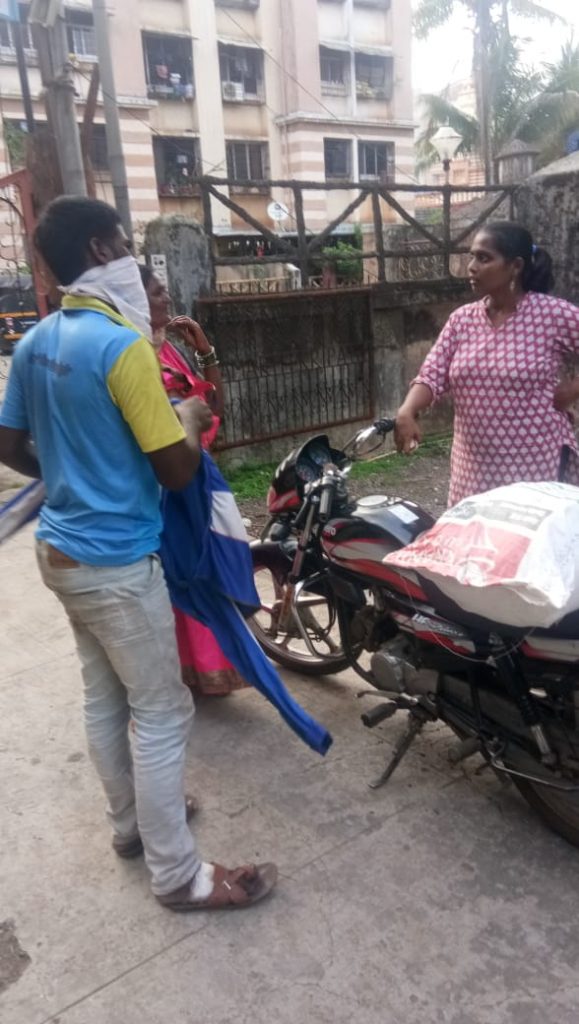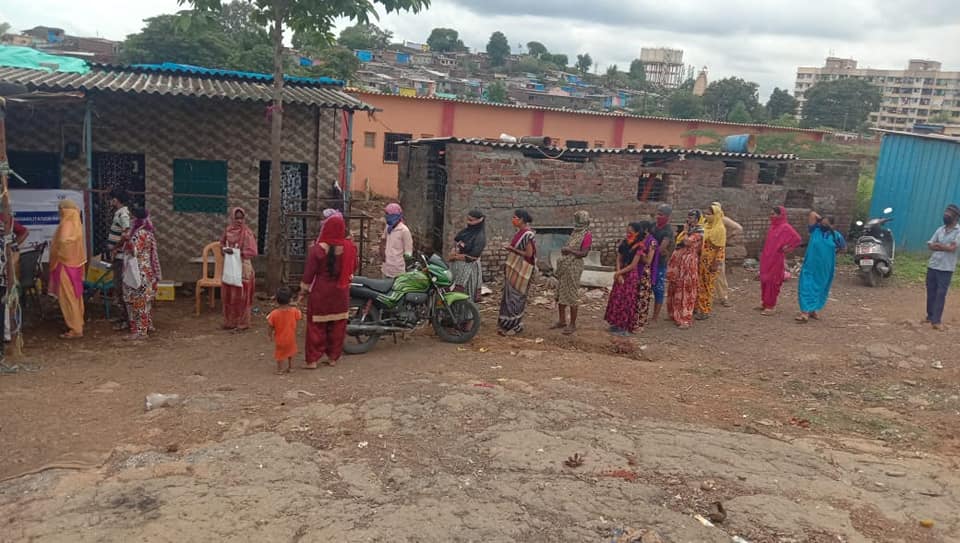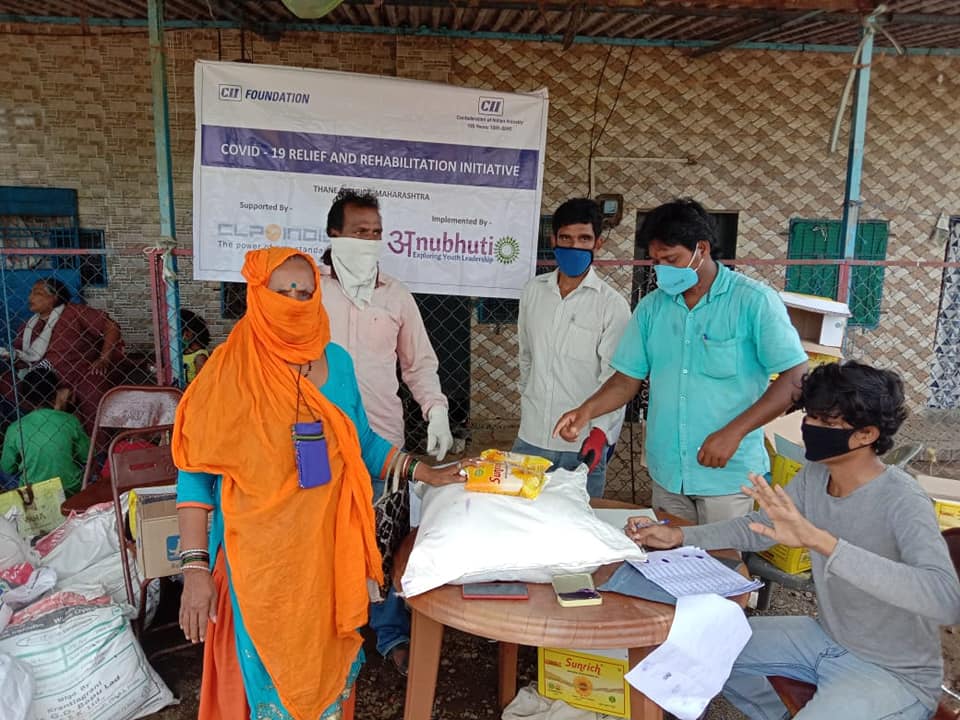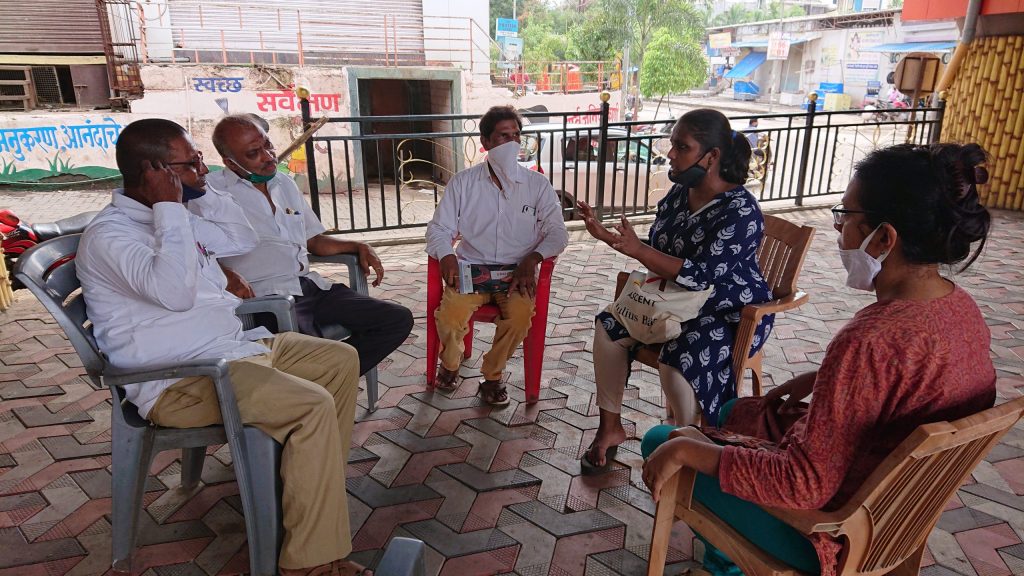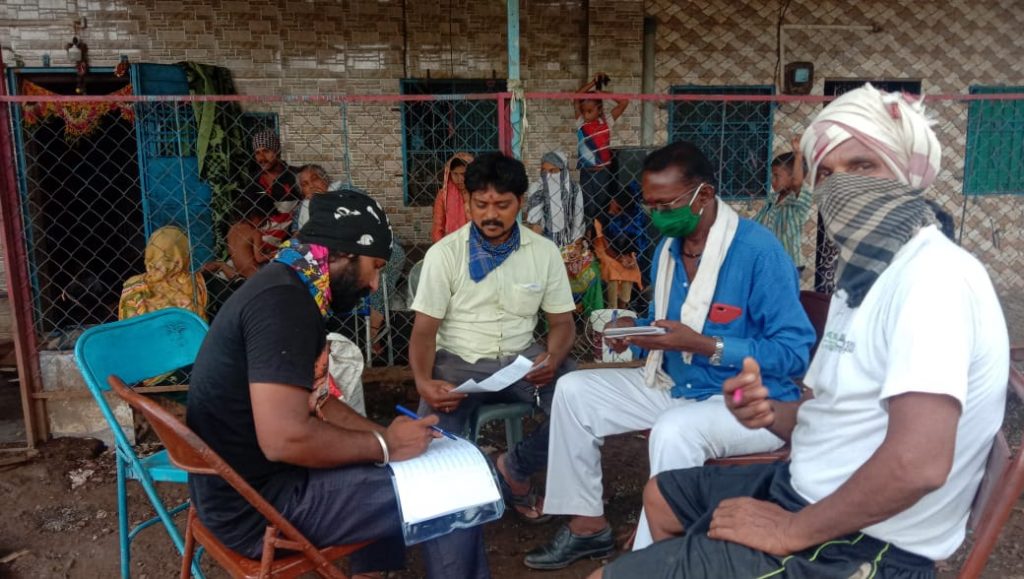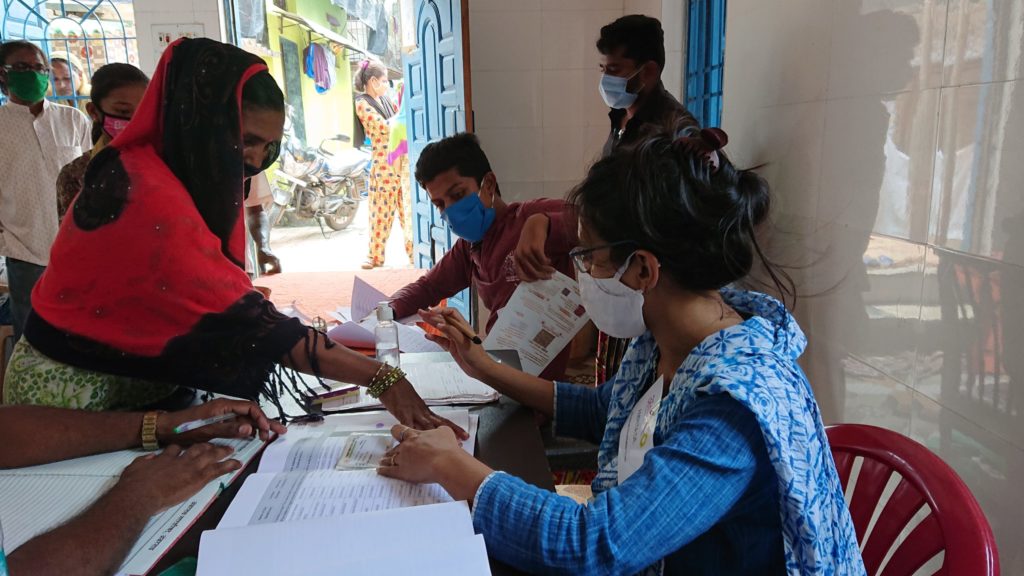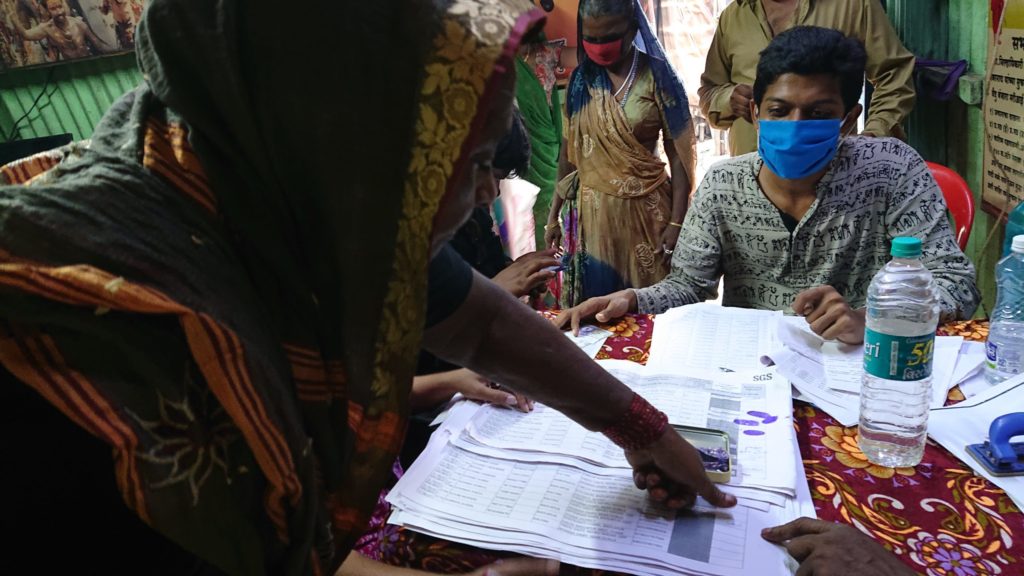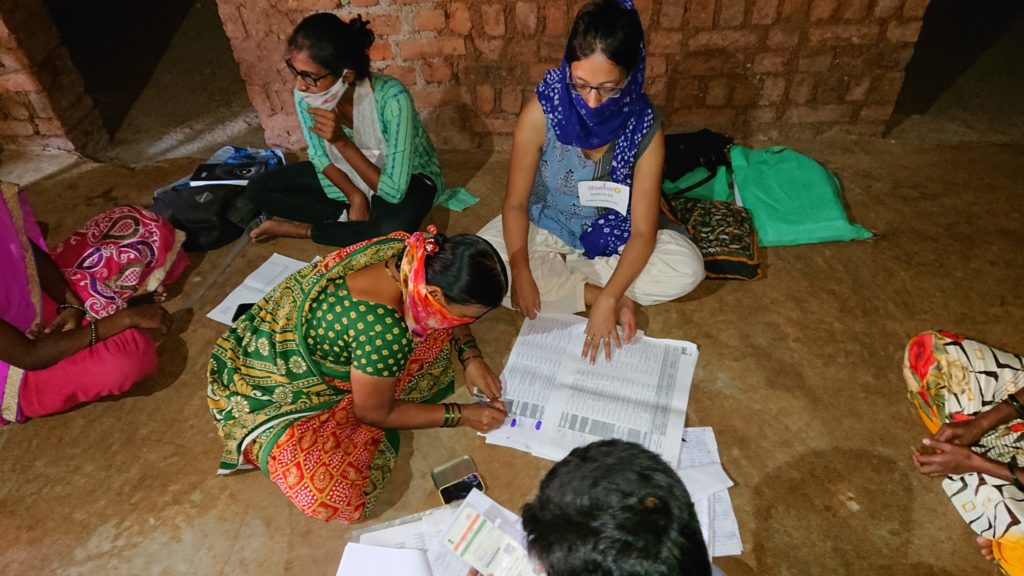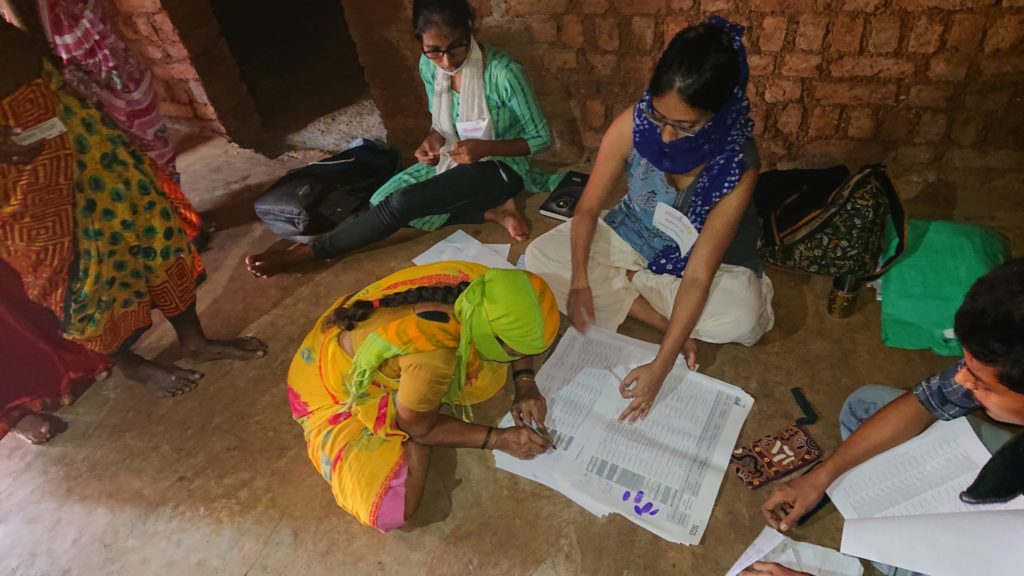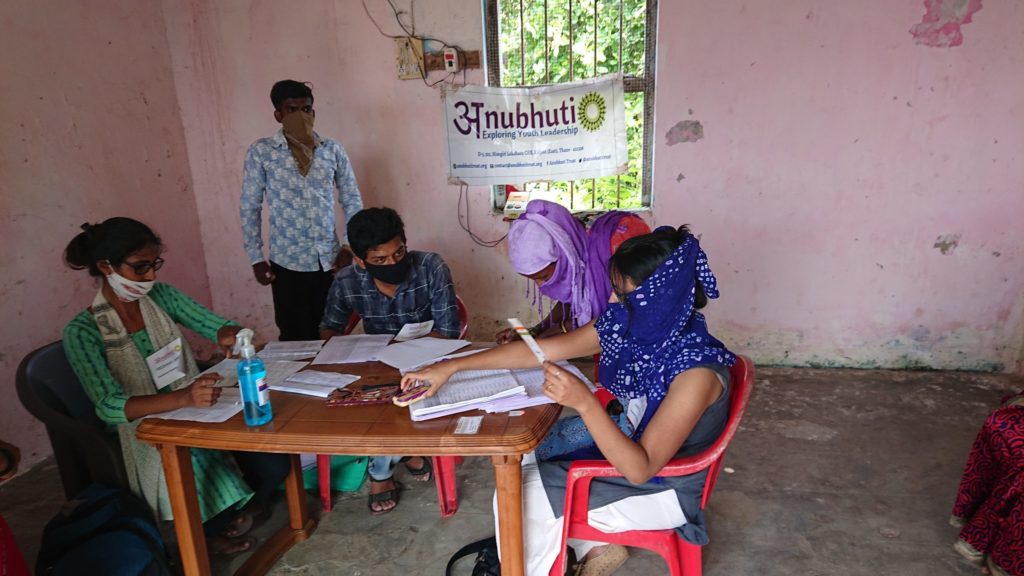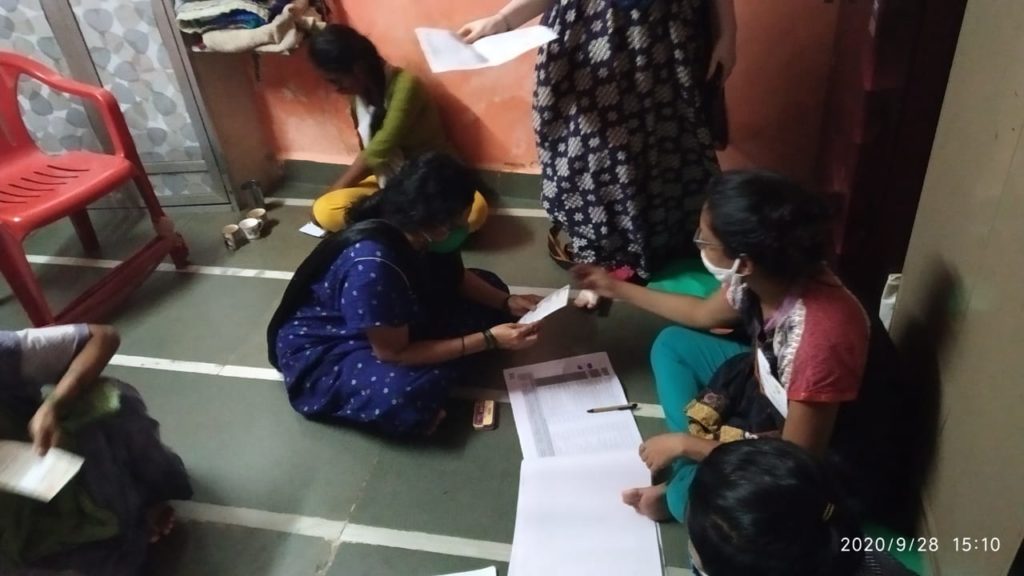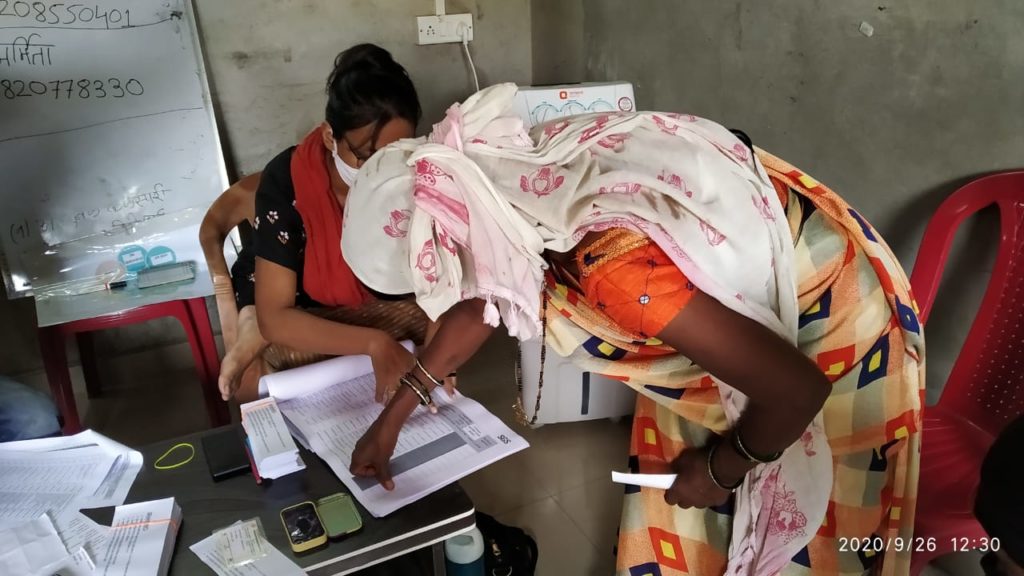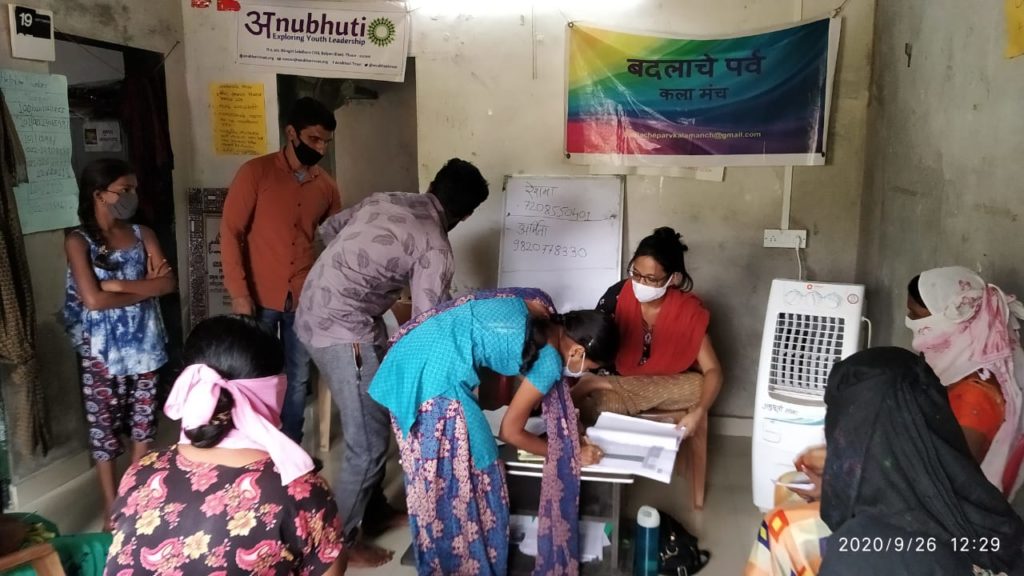This post contains detailed updates. Please see here about our response to the COVID-19 emergency.
In the last week of March, a 21-day lockdown was announced in India, as a measure to curb the spread of the COVID-19 virus. Many activists and NGOs like us started worrying how we will survive such a period financially. What it would mean to daily wage workers, migrant labourers, Nomadic & De-notified Tribes, adivasi (tribal) families, households headed by disabled persons, etc. have no fixed income and almost no savings. Many swung into action to provide relief including us. Since then, the lockdown was extended to almost 3 months. We as social activists must respond in a sustained manner, and also plan efforts for long-term injuries.
Week 1: (March 27 – April 2)
- Youth leaders in Kolegaon, Dombivali and a team member in Ambivali sourced and distributed dry ration kits to 125 adivasi (ST) families working in brick kilns. They were entirely trained on the phone in every aspect of relief including safety protocol.
- Simultaneously, the arduous work of finding nomadic tribe (NT/DNT) families across Maharashtra began – through establishing contact with local grassroot leaders on the phone. At least 10 districts were reached thus. This was entirely outside of our project areas but our founder being NT herself, we decided that this was the time to find those most removed from the mainstream, where there wasn’t awareness of even helplines and relief operations. Direct bank transfers were done to 88 such families.
Week 2: (April 3 – 9)
- Youth leaders of Kolegaon covered the remaining brick kilns near their village, reaching another 64 ST families with dry rations.
- 50 more ST families were reached with dry rations in Badlapur gaon in Thane District.
- 42 NT/DNT families across Maharashtra were reached with direct bank transfers.
- Simultaneously, team members were trained and they started counselling on the phone, reaching 70 youth and clients of our community centres. Bank transfers or dry rations were provided to 35 of them as part of mental health support.
Week 3: (April 10 – 16)
- Dry ration relief to 50 SC families in Badlapur gaon and 13 NT/DNT more families across Maharashtra.
- Team started reaching out to college youth participants of our Constitution Literacy & other training programs with counselling.
- Online campaigns of ‘Ambedkar Jayanti from Home’ (starting from the actual day of 14th April to end of April) and ‘Mental Justice Story’ Contest were started. Youth, activists, etc. were invited to participate.
- Tweet Chat was organized for awareness and advocacy about the plight of the NT/DNTs.
- An open letter requesting the Chief Minister of Maharashtra to respond to the dire situation of NT/DNTs – living without shelter, food, safety, sanitation in this pandemic was published by founder Deepa Pawar in collaboration with other NT/DNT activists.
- Similar letters were sent to several District Collectors of Maharashtra state. 2 Districts responded positively – with appointment of nodal officers in Mumbai District and surveys carried out by order of Kalyan Court for Thane District.
- Group calls and group counselling were organized with youth leaders carrying out relief on the ground.
Week 4: (April 17 – 23)
- Dry ration relief to 121 NT/DNT & SC families from Kalyan to Badlapur and direct bank transfers to 18 NT/DNT families across Maharashtra.
- Online campaigns of ‘Ambedkar Jayanti from Home’ and ‘Mental Justice Story’ Contest continued.
- Follow-up of advocacy with District Collectors continued.
Week 5: (April 24 – 30)
- With the increasing work with NT/DNT families, started receiving calls from grassroot leaders of these communities. Thus, 63 families across Dombivali, Badlapur, Bhiwandi and Mumbai were reached, and list of 550 more was documented with much efforts of screening.
- Started contacting NT/DNT, ST persons to record their experiences on video since no one could voice their issues better than themselves. Youth leaders and team members reached them where possible.
Week 6: (May 1 – 7)
- 430 NT/DNT families across Kalyan, Vitthalvadi, Ambernath, Ghatkopar were reached with dry rations. Strong networking with community local leaders was established during this.
- An awareness film was made and published on how to sensitively support the most vulnerable populations around us such as NT/DNT, adivasi, migrant & seasonal labourers, persons with mental illness, etc. in this pandemic.
- Publication of videos of voices of people on the ground continued.
Hear Umesh Salunkhe of Satara, Maharashtra.
Week 7: (May 8 – 14)
- 200 families of different NT/DNT communities reached in Kalyan and Vitthalvadi with dry ration.
- Bank transfers as a form of financial and moral support to 11 families with COVID positive patients.
Week 8: (May 15 – 21)
- 220 families of various NT/DNT communities reached in Kalyan, Vithhalvadi, Ambernath, and Indapur in Pune with dry ration.
- Second round of bank transfers started to few very needy families.
Week 9: (May 22 – 28)
- Bank transfers to survivors & victims of caste atrocities.
Week 10: (May 29 – June 4)
- Bank transfers to social activists in financial distress.
- 105 families of NT-DNT communities reached with dry ration in Ambernath, Badlapur and Murbad in Thane District and Wai in Satara District.
- Financial assistance and counselling to people affected by the NISARGA cyclone in Badlapur.
Week 11: (June 5 – 11)
- 240 families of NT-DNT, SC and adivasi communities reached with dry ration in Ambernath, Kopri and Mumbai – some of them living in the worst possible conditions near dumping grounds and terrible housing.
Week 12: (June 12 – 18)
- 155 NT-DNT families reached with dry ration in Badlapur & Ambernath.
- Financial assistance to more families affected by the NISARGA cyclone in different parts of Maharashtra
Week 13: (June 19 – 25)
- Mentoring and preliminary work to start disaster managment training and making communities resilient to current and future disasters. Meetings started with community leaders with whom we have built relationships over last few months.
August:
Various families including of activists and survivors of natural disasters, gas cylinder explosions, and violence were reached with rehabilitation, medical help or other support.
September :
At this point many people were at their worst, because they had been out of jobs for more than 6 months. Lockdown reopening did not mean that they could go back to work because their work nature is highly informal such as selling door to door, on trains, rag picking, performing on roads etc. This made it very difficult for them to earn and feed their families. For this reason, Anubhuti started distributing Big Bazar food coupons to concerned families, which was a project by SGS (a Swiss multinational company) and Sony Pictures Networks India. 925 families across Thane District and some places in Mumbai were thus reached.
Anubhuti believes that disaster relief is an integral part of Mental justice, where communities’ mental health is closely connected to the rising economic, social, political insecurities that vulnerable populations are disproportionately facing in the wake of COVID19. Therefore, keeping in mind the aim of social justice, Anubhuti carried out the respective work.
We thank Mariwala Health Initiative, CII Foundation & CLP India, SGS, Sony Pictures Networks India, individual donors, Samarpan NGO, Rotary Club and Rotract Club of Dombivali for being with us as supportes.
We need to continue to fundraise; we have now branched out into ground leadership development, capacity building, disaster management training, scholarships for girls along with regular counselling and cases handling in our pandemic response.
Indian donors can donate via the PayUmoney payment gateway by clicking here:
All Donations to Anubhuti Charitable Trust are tax exempt under section 80G of the Income Tax Act, 1961.

